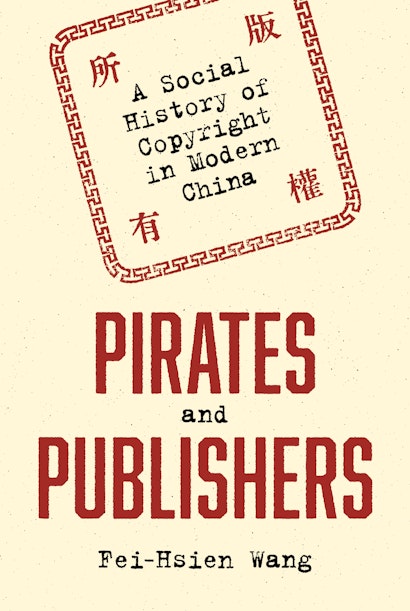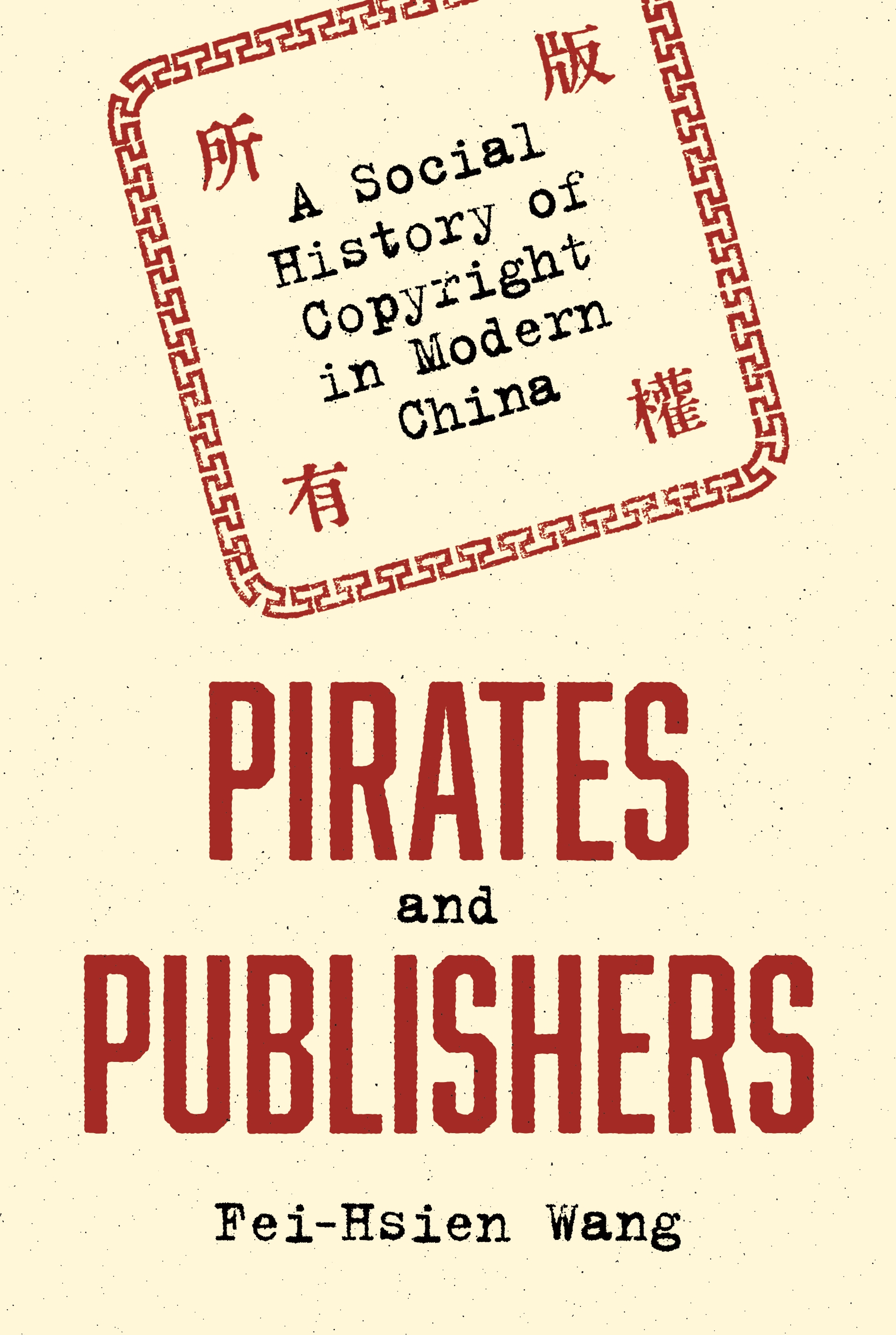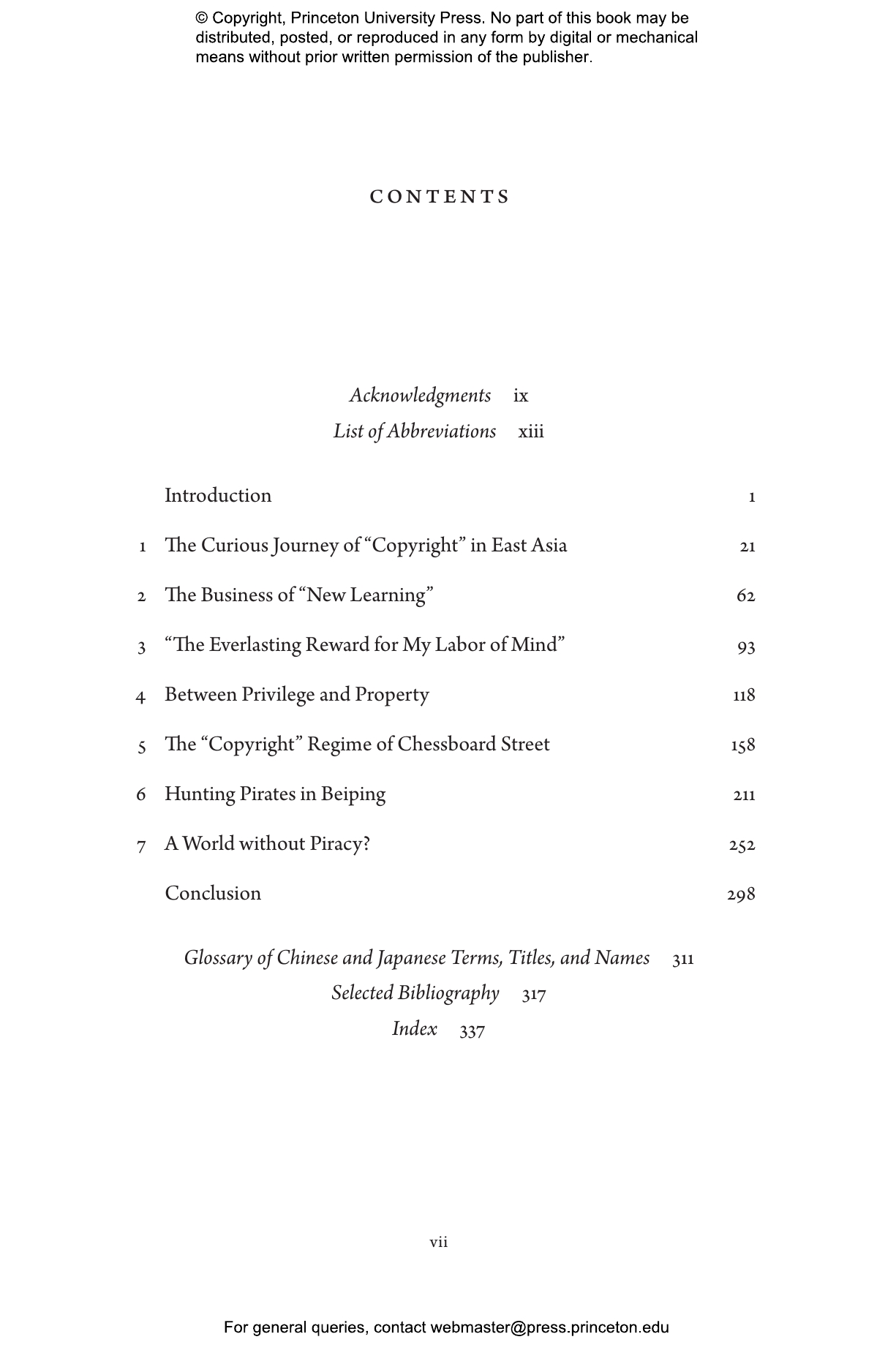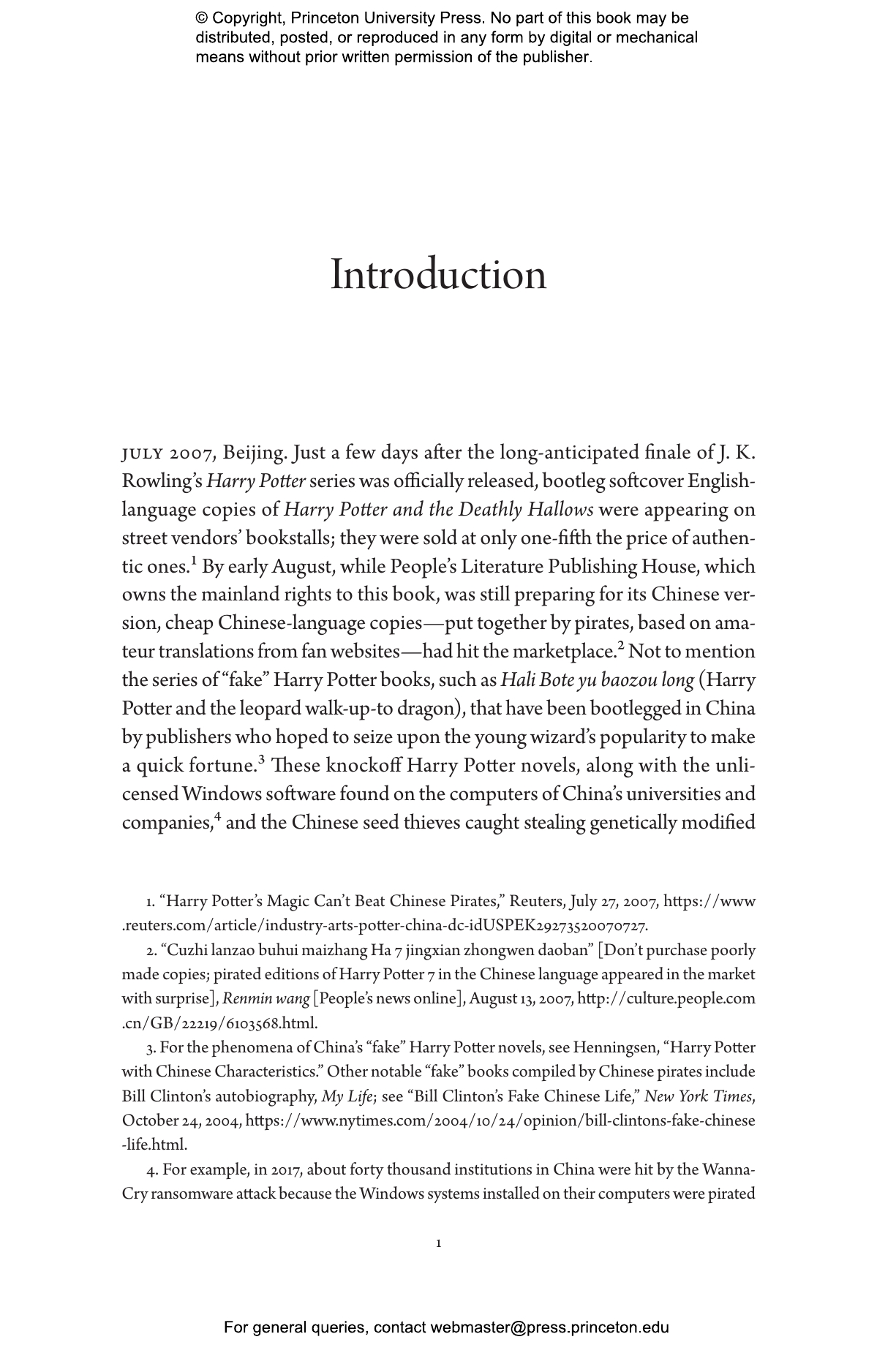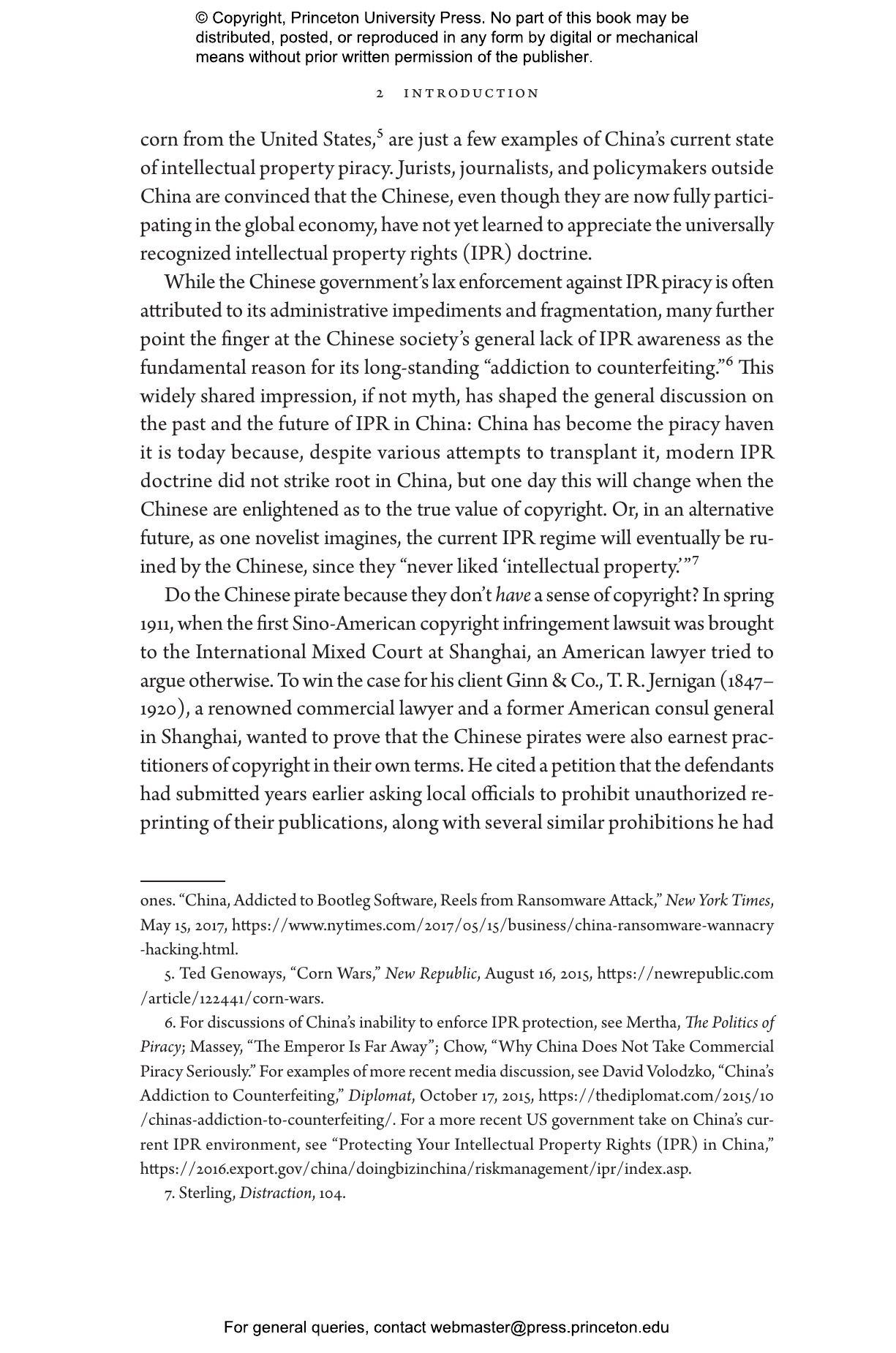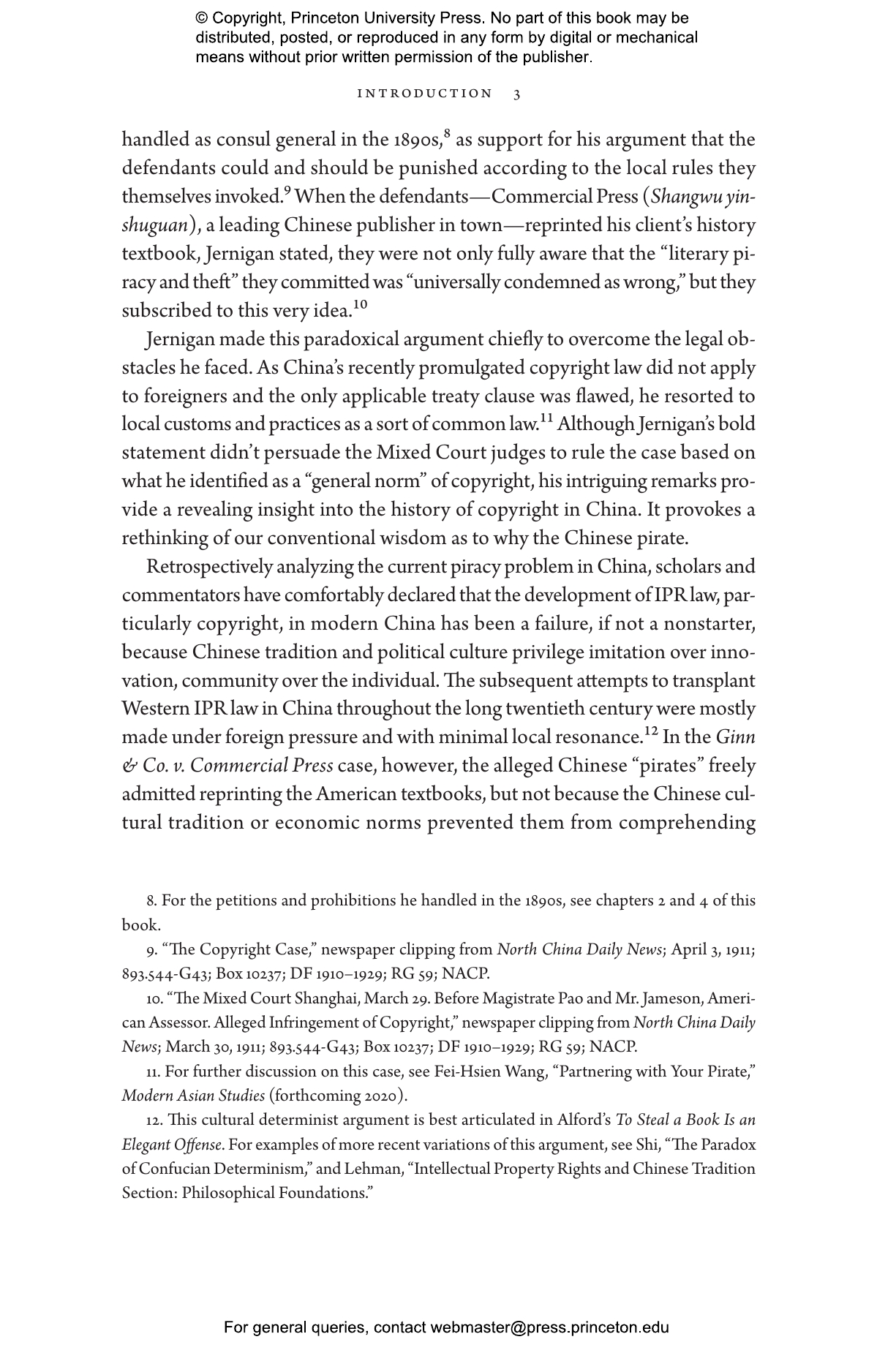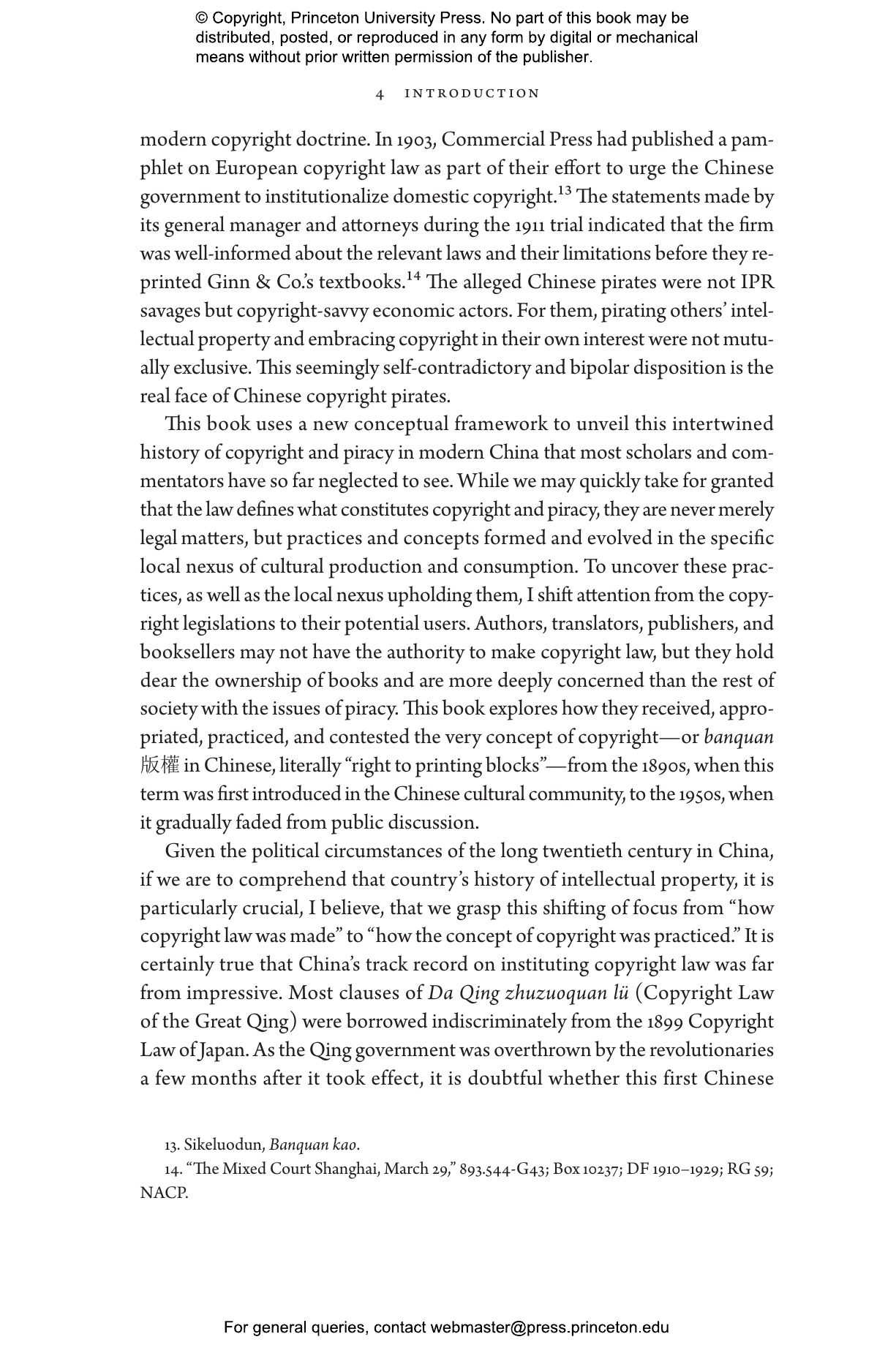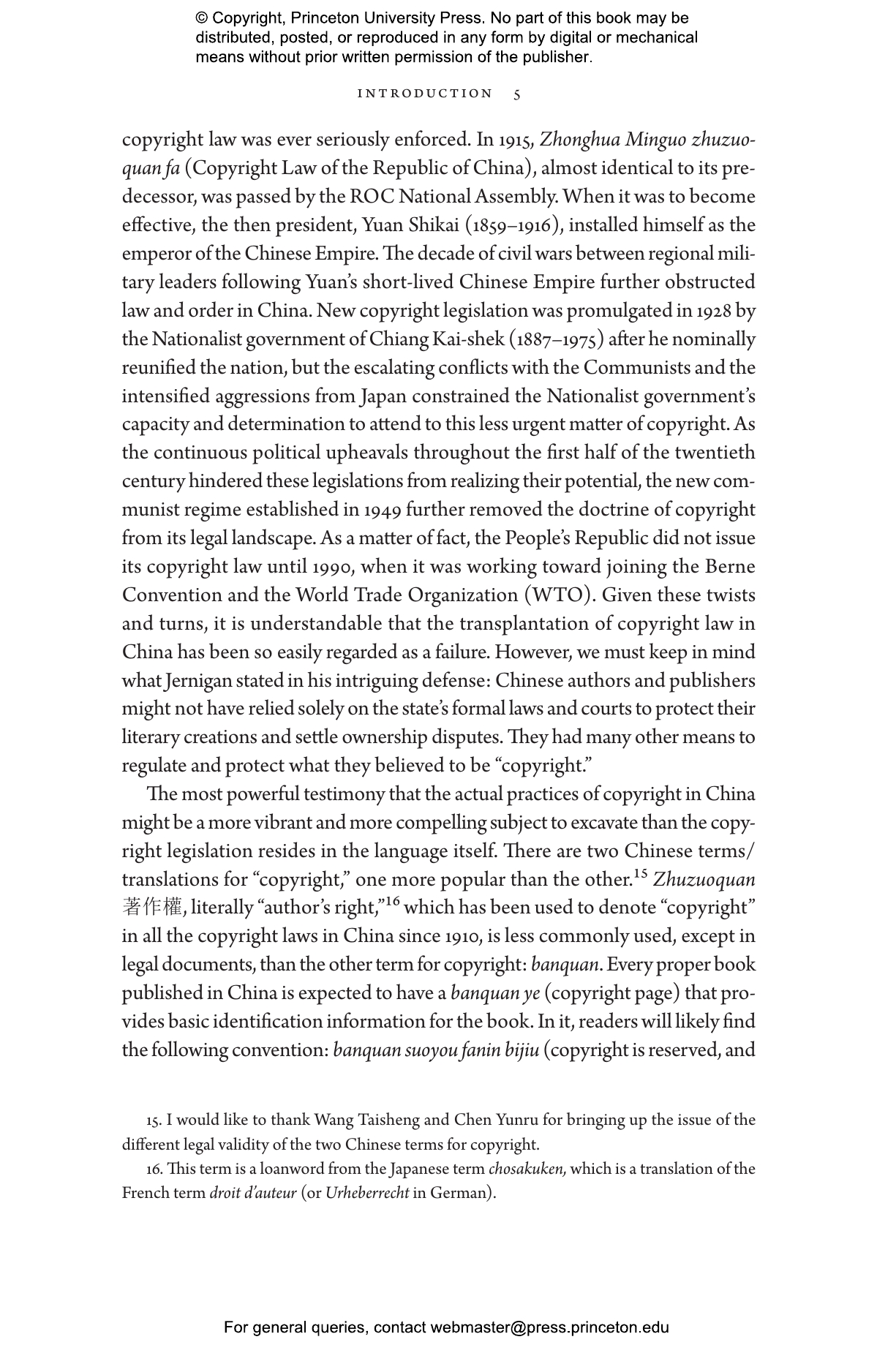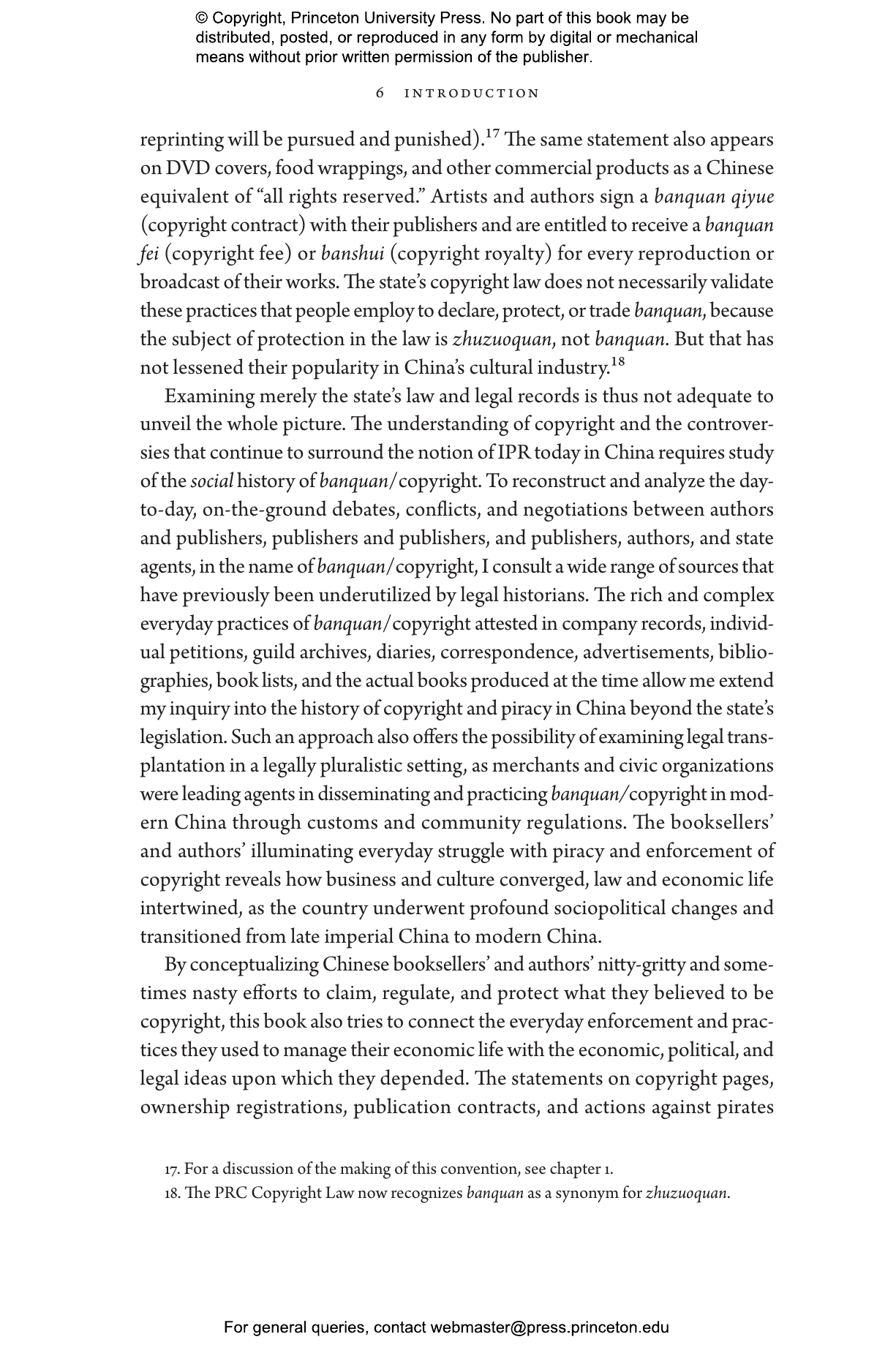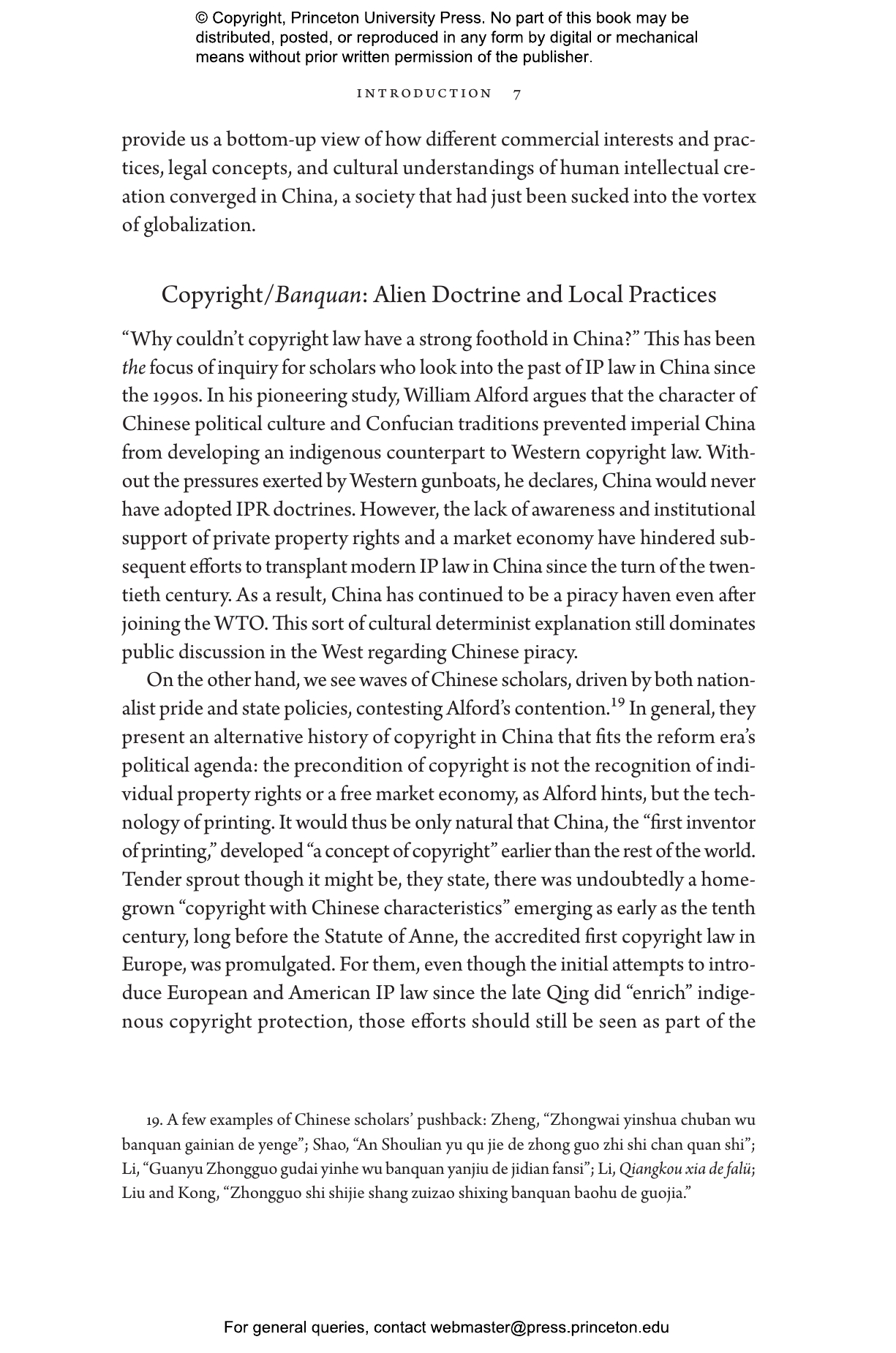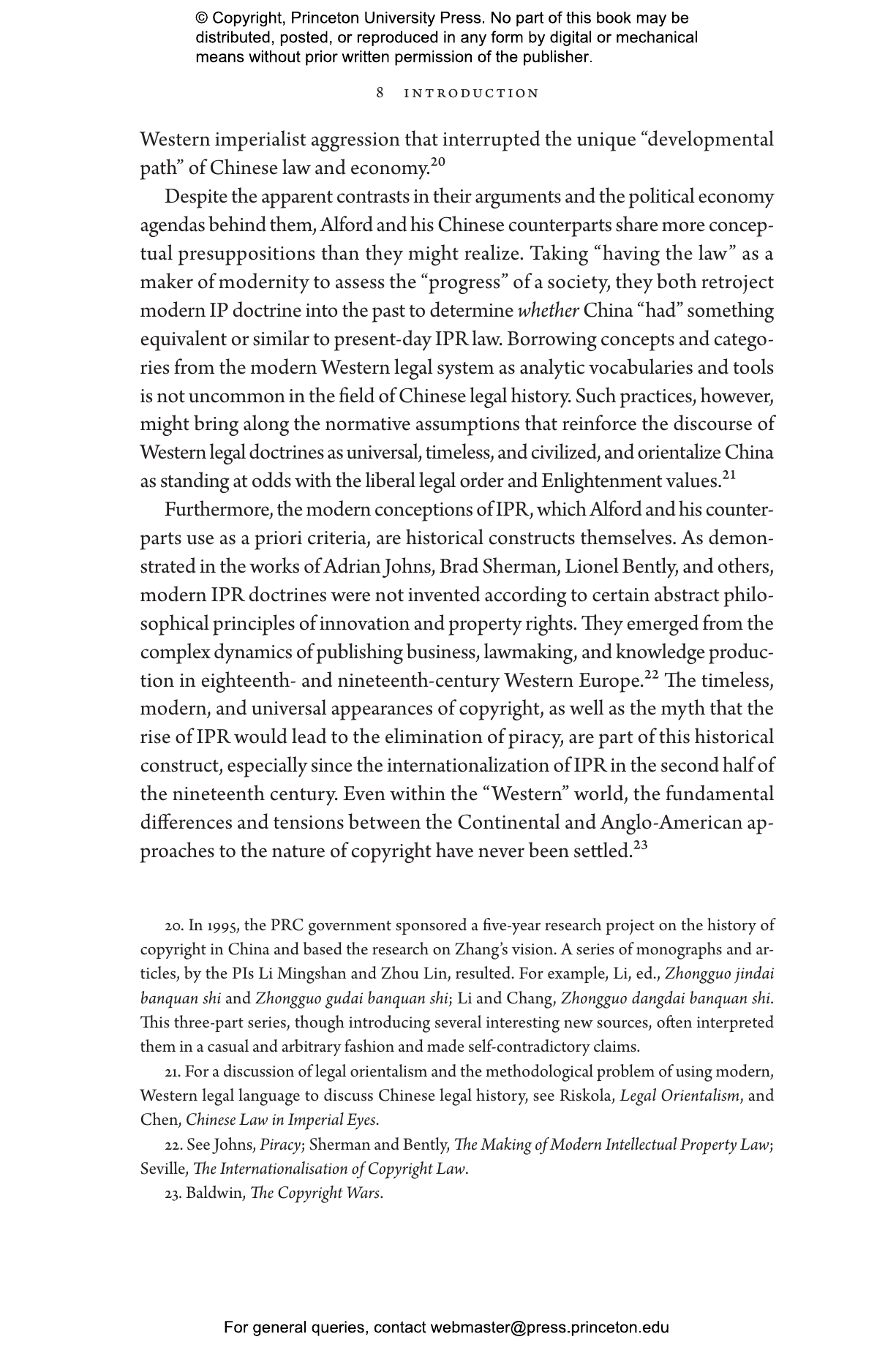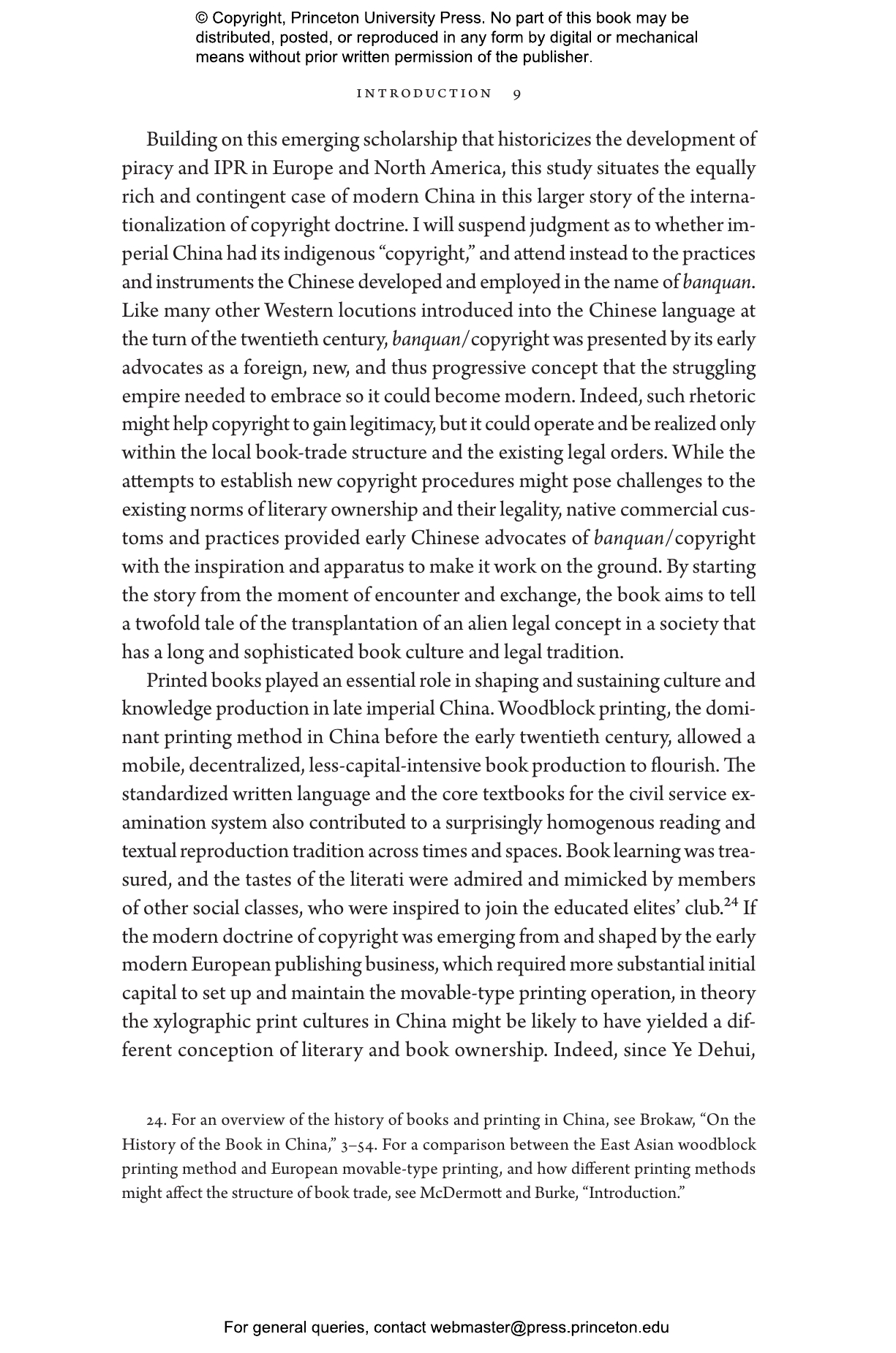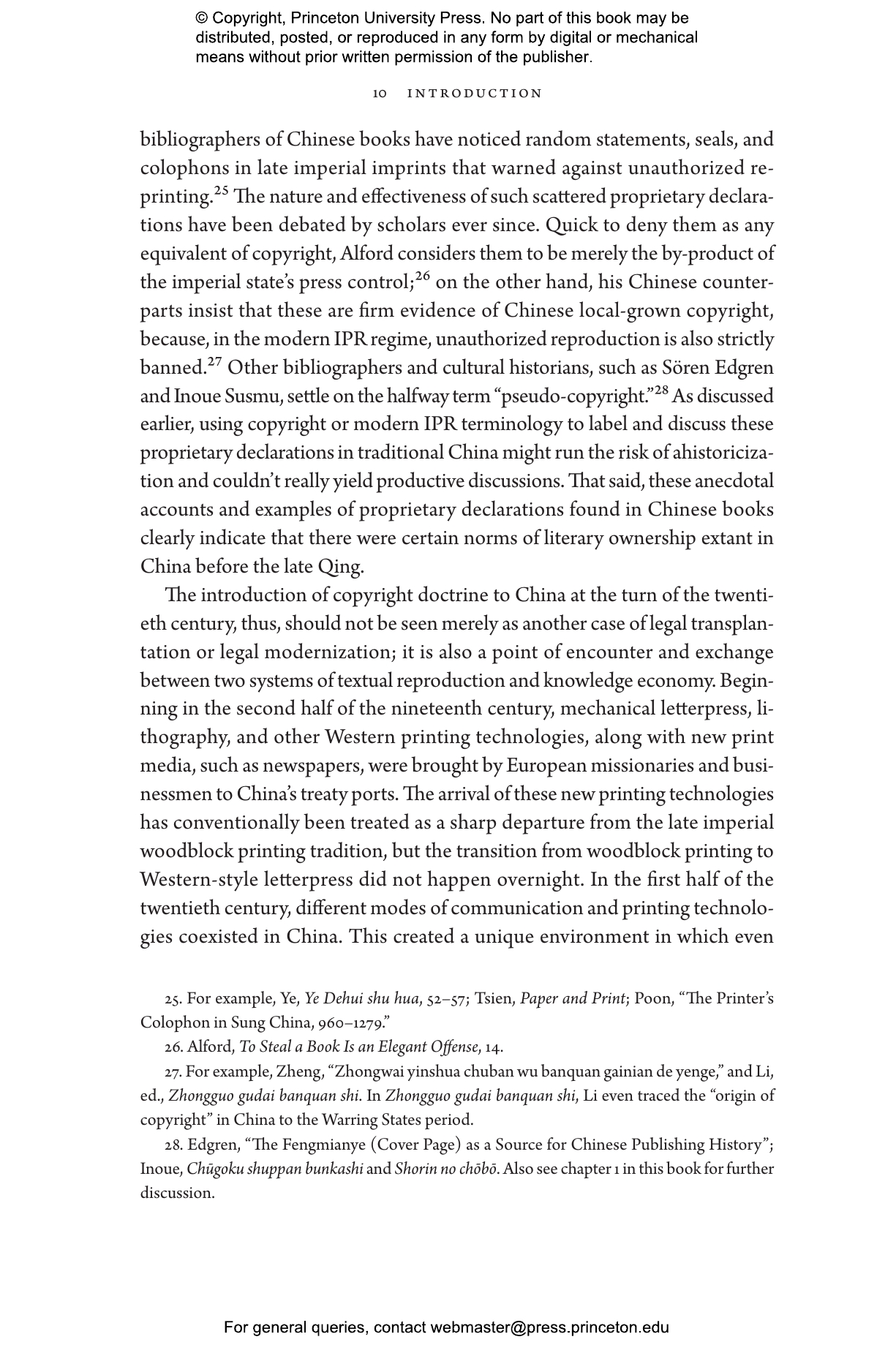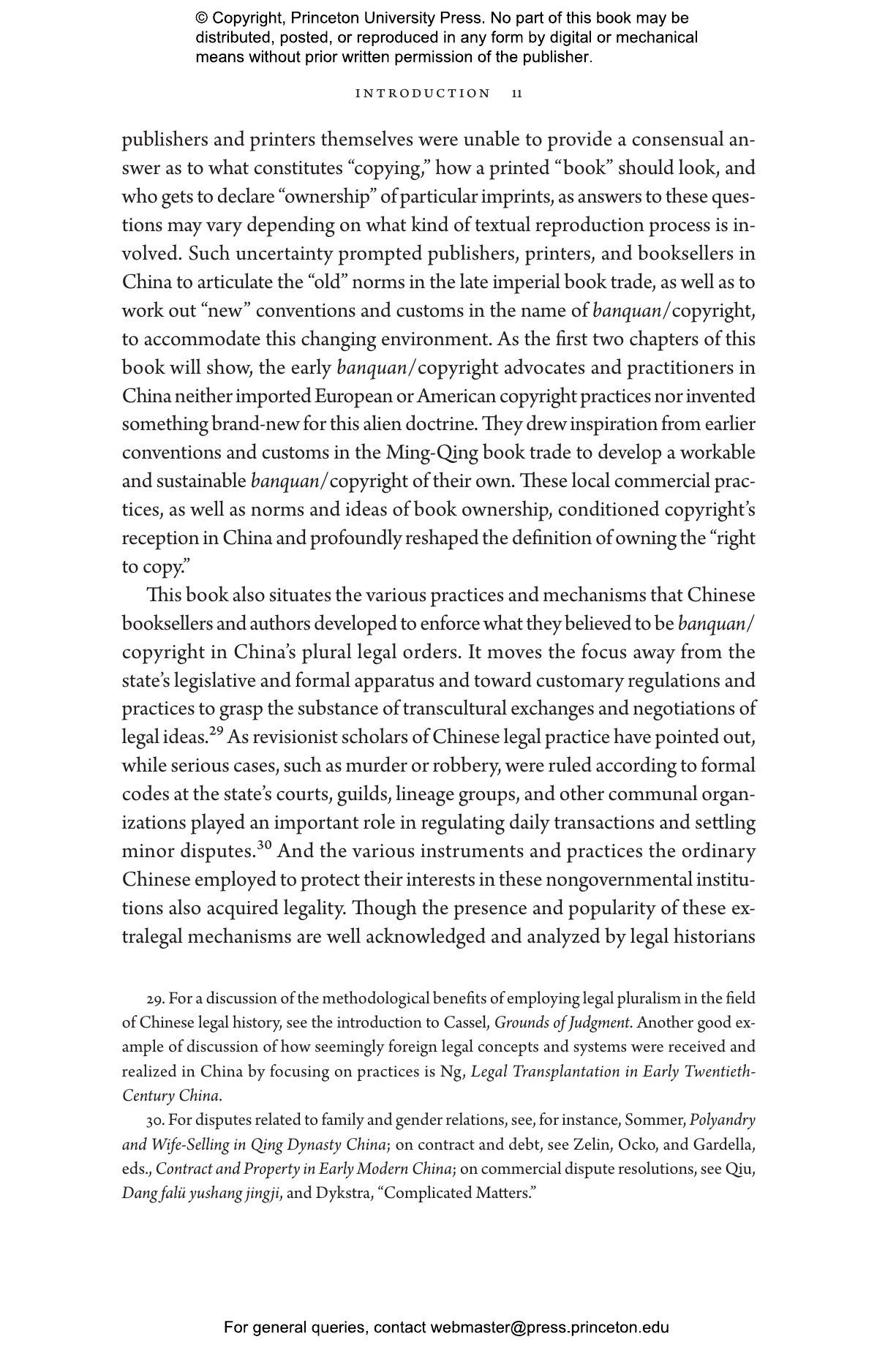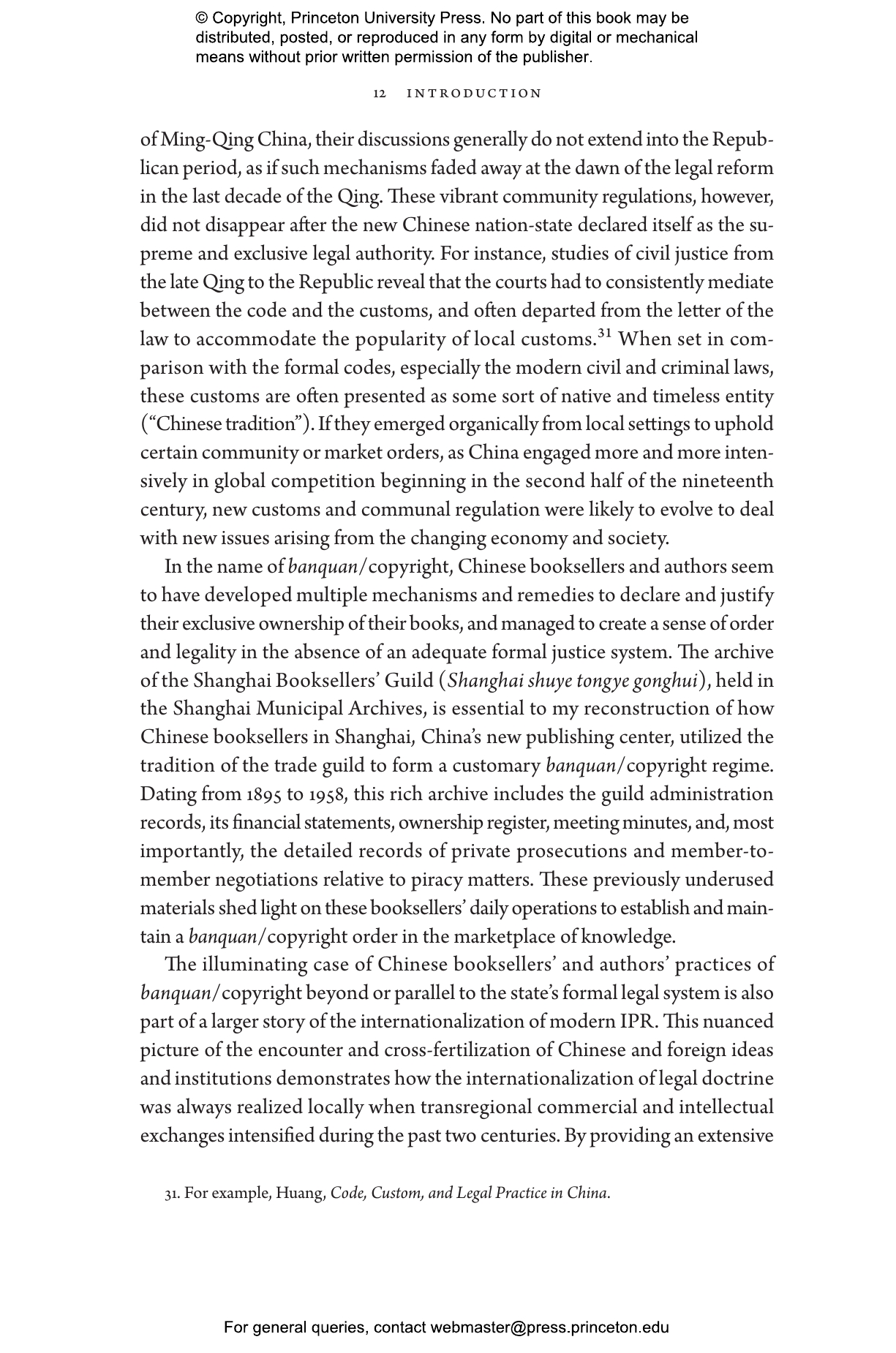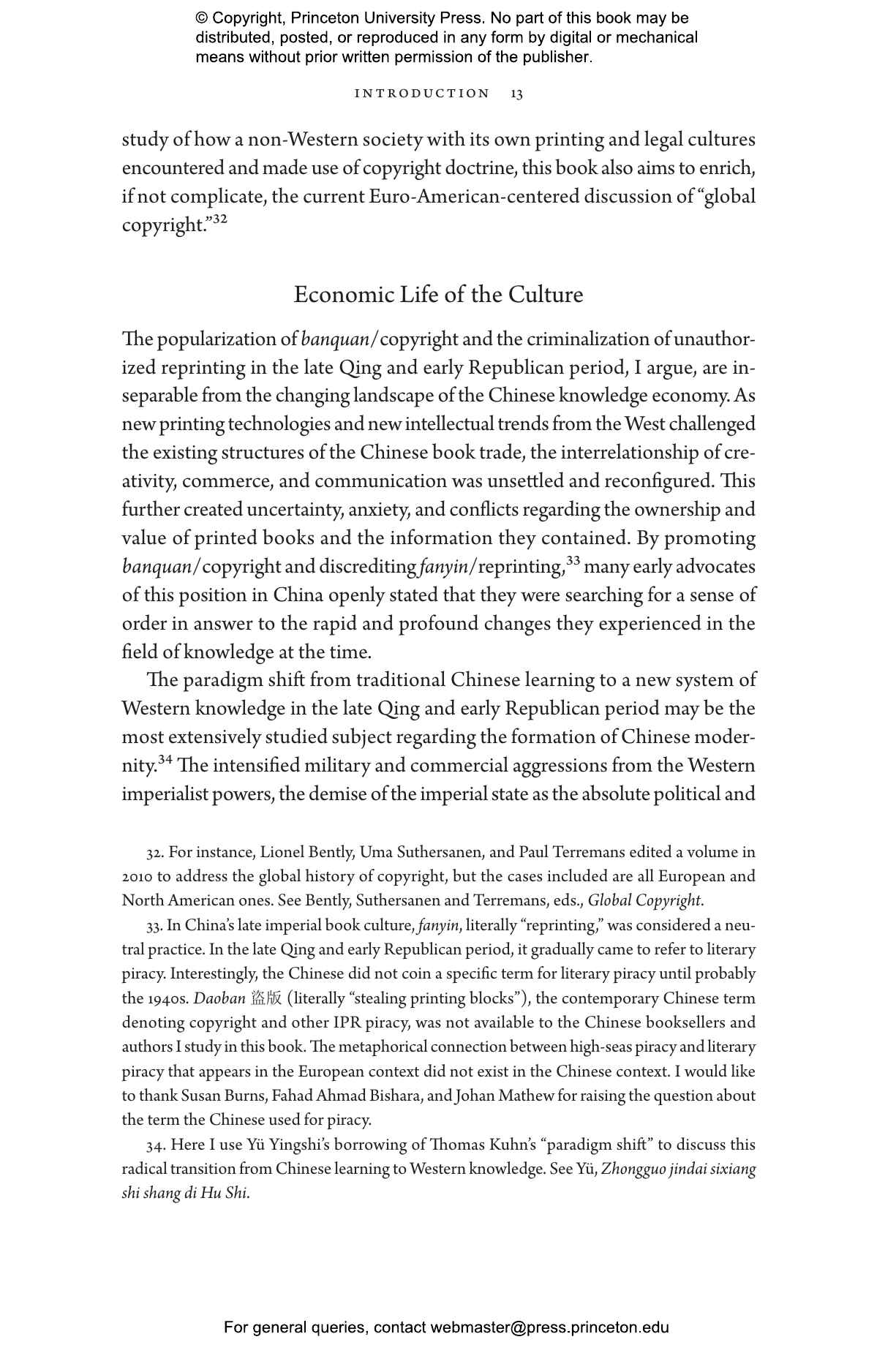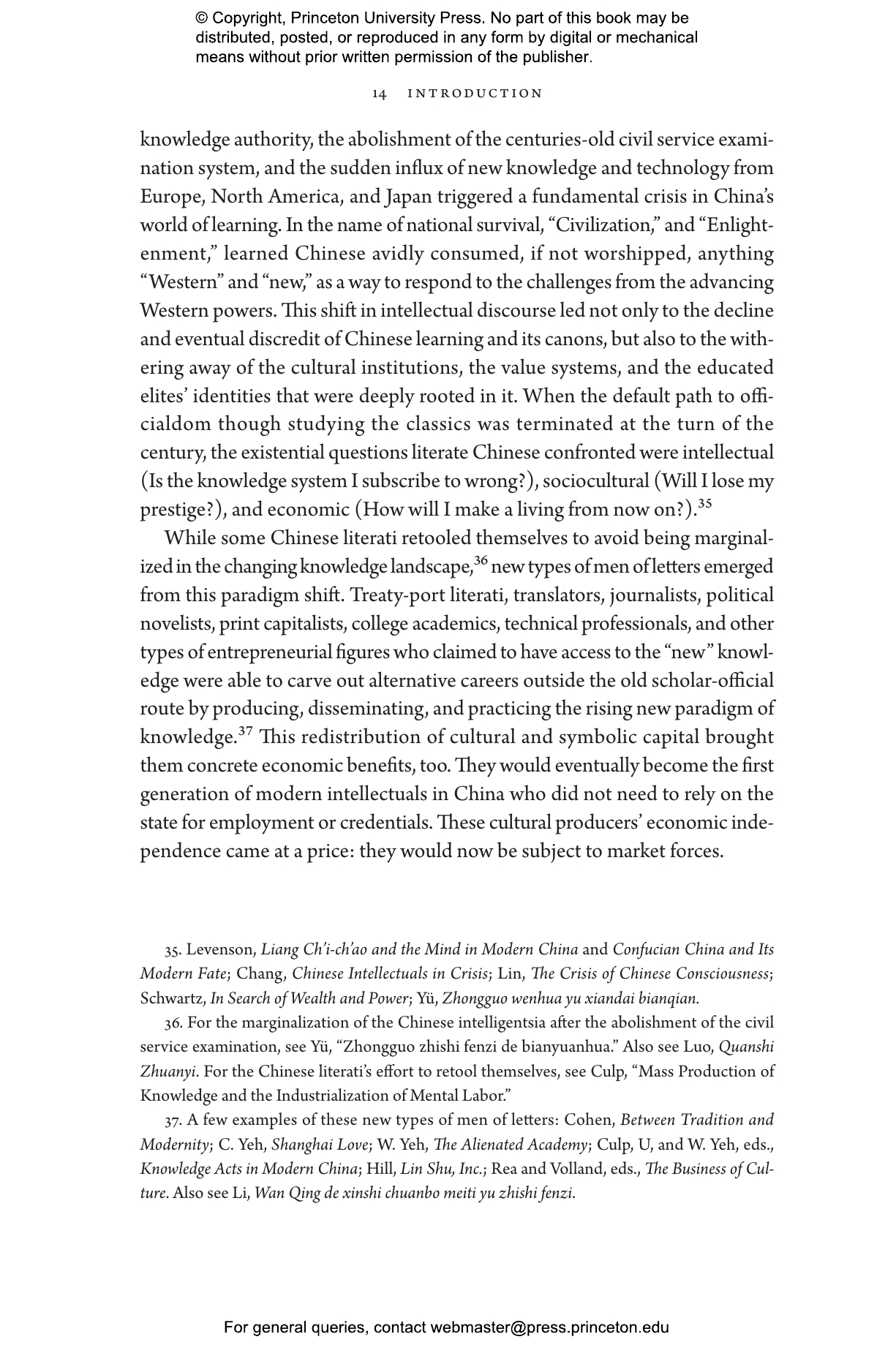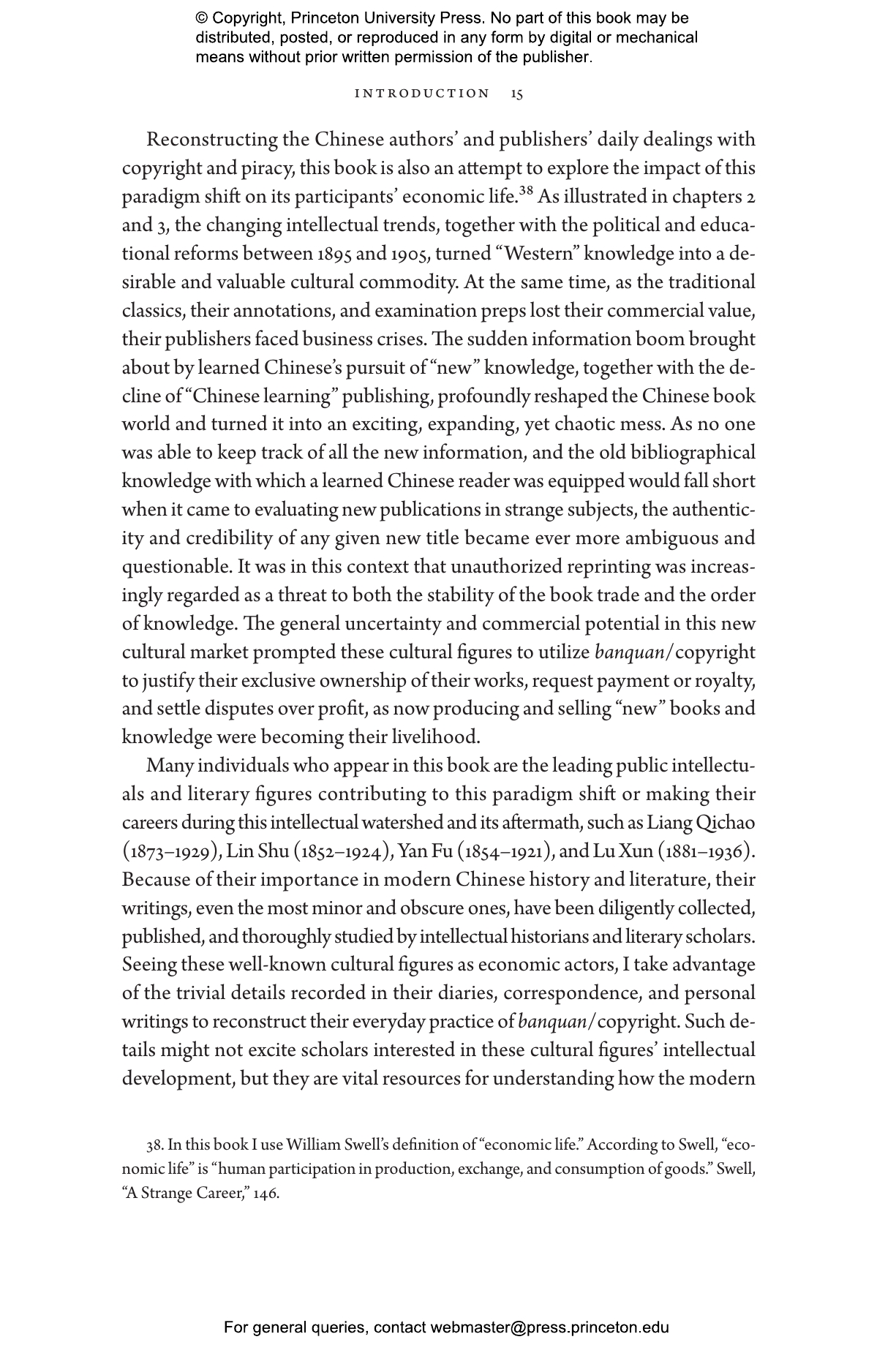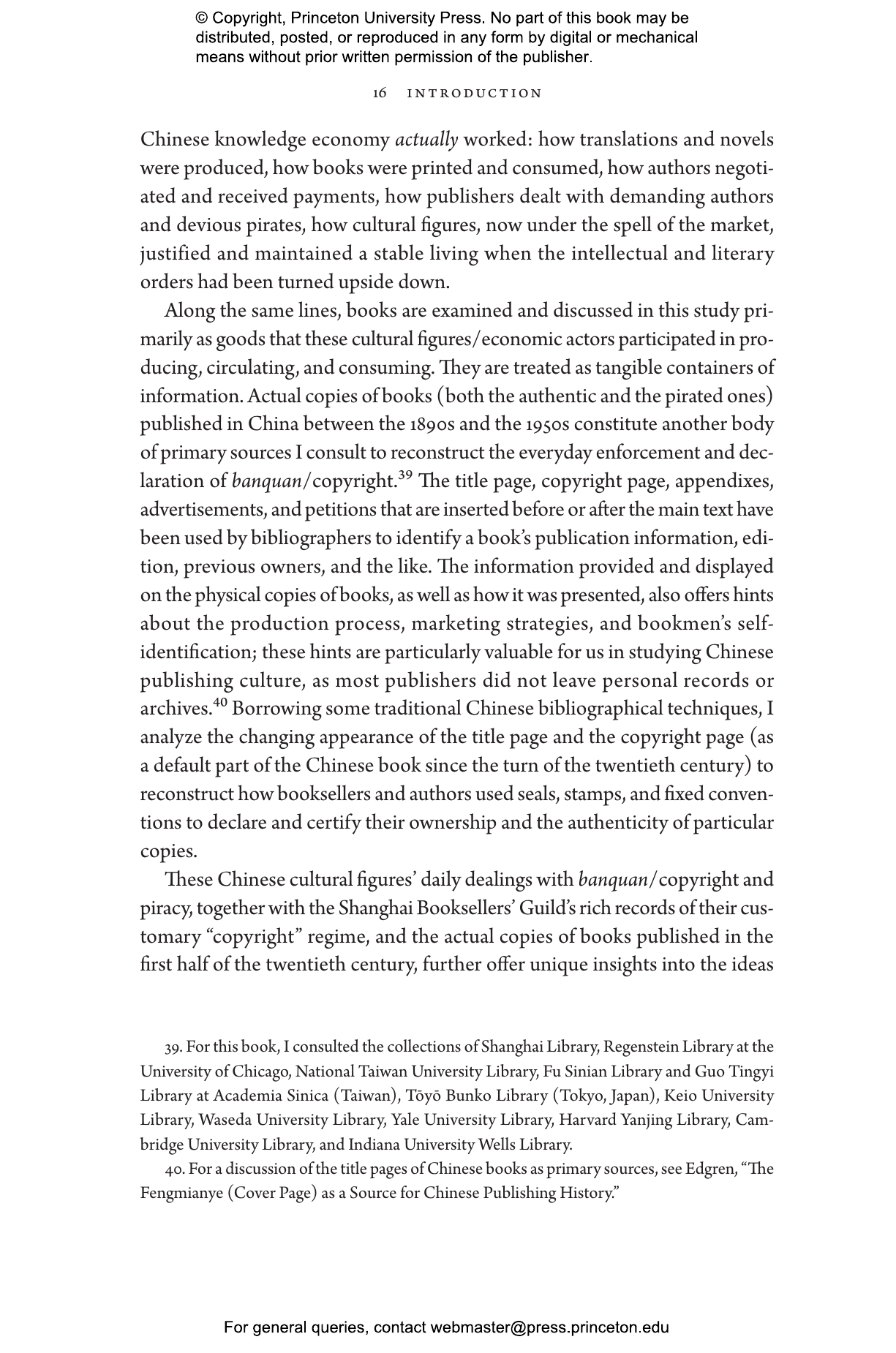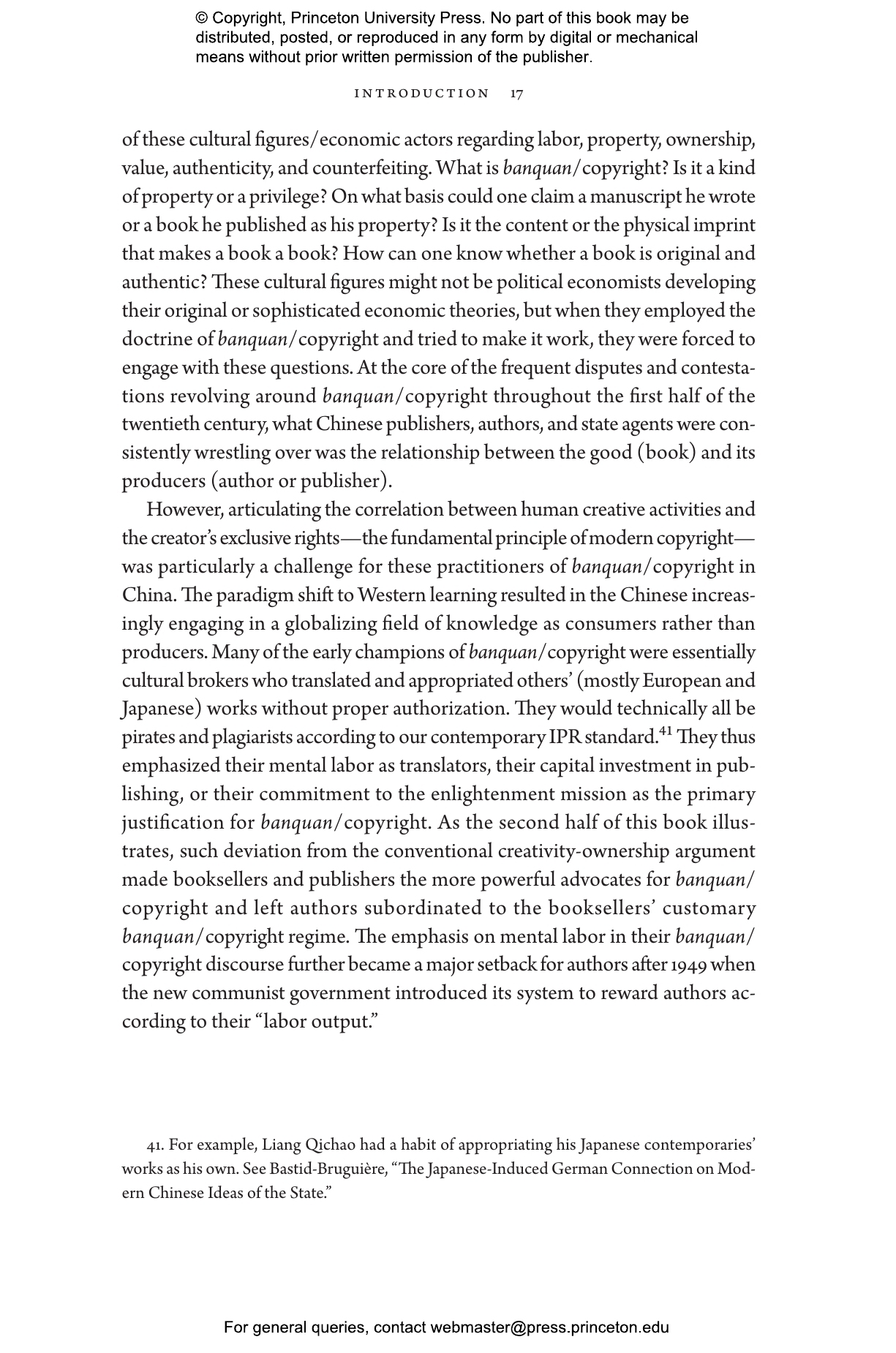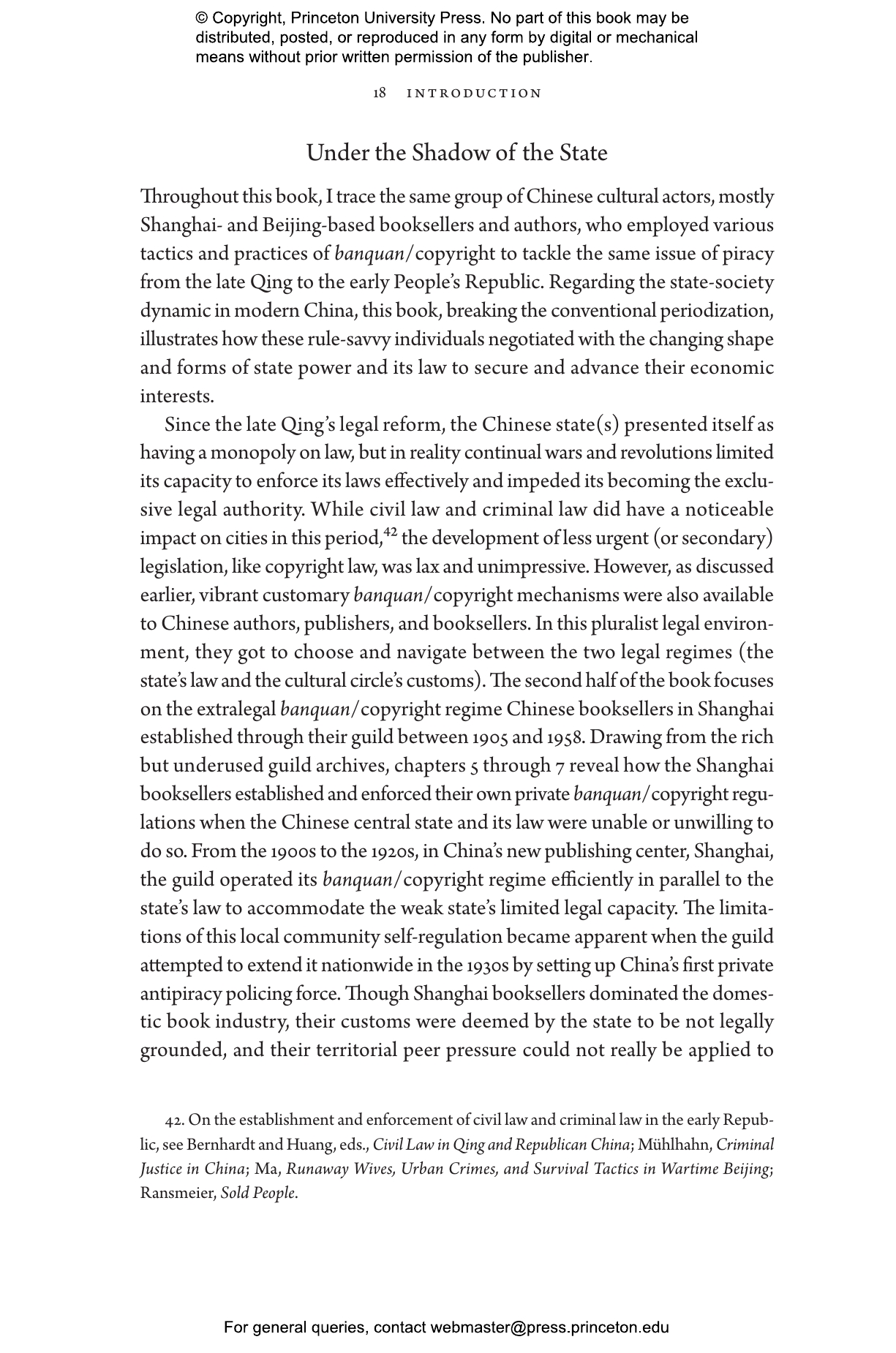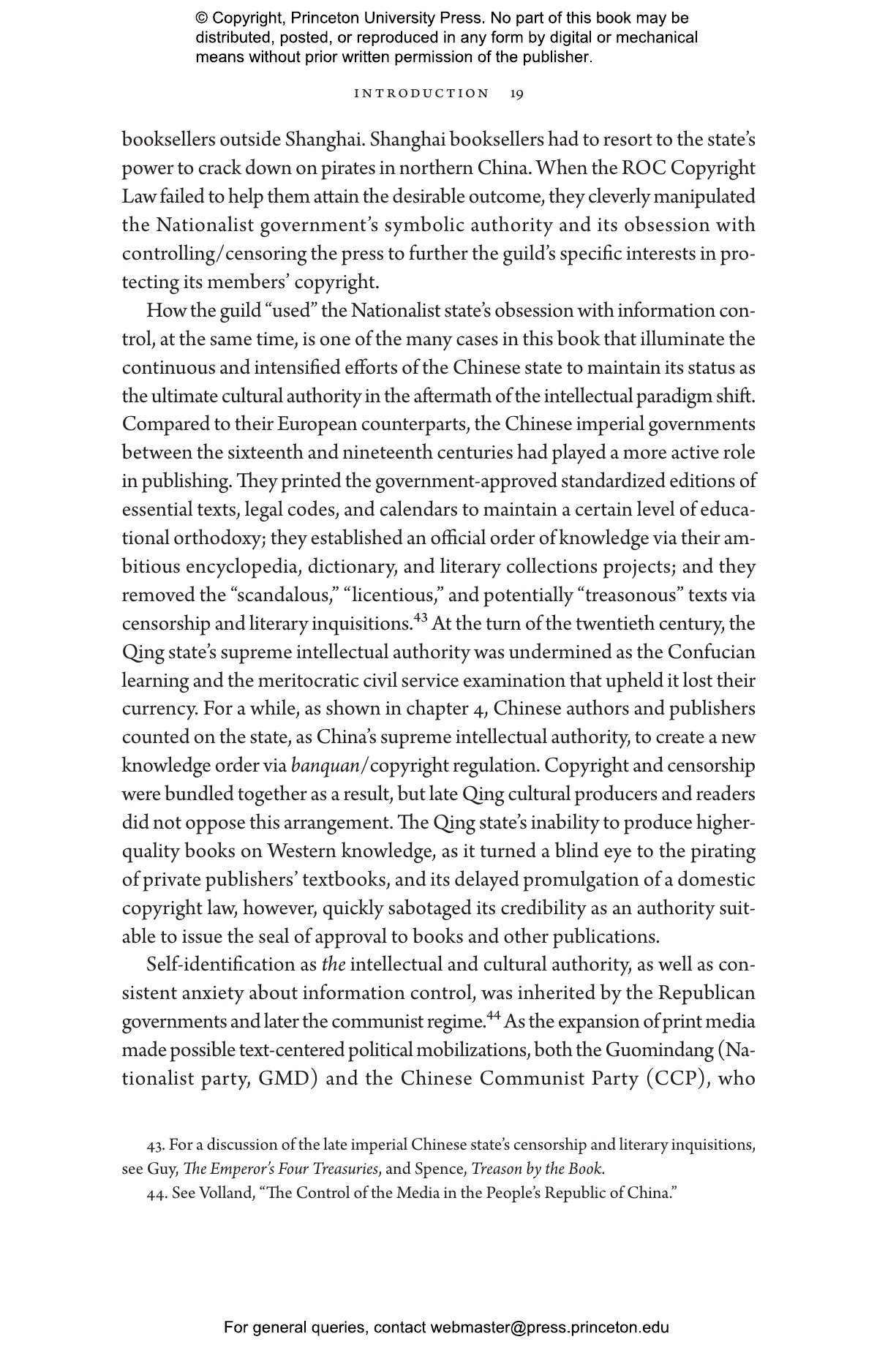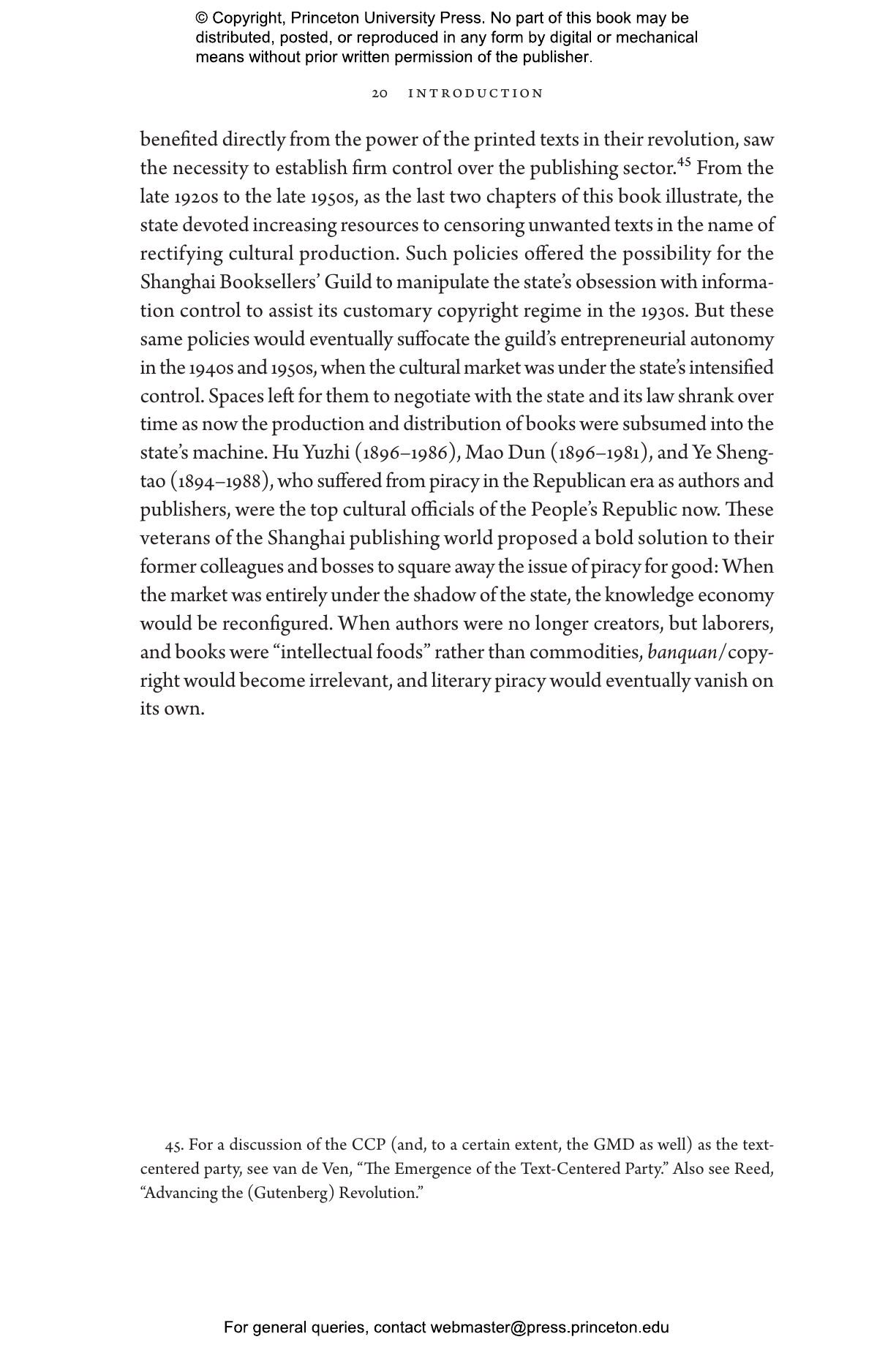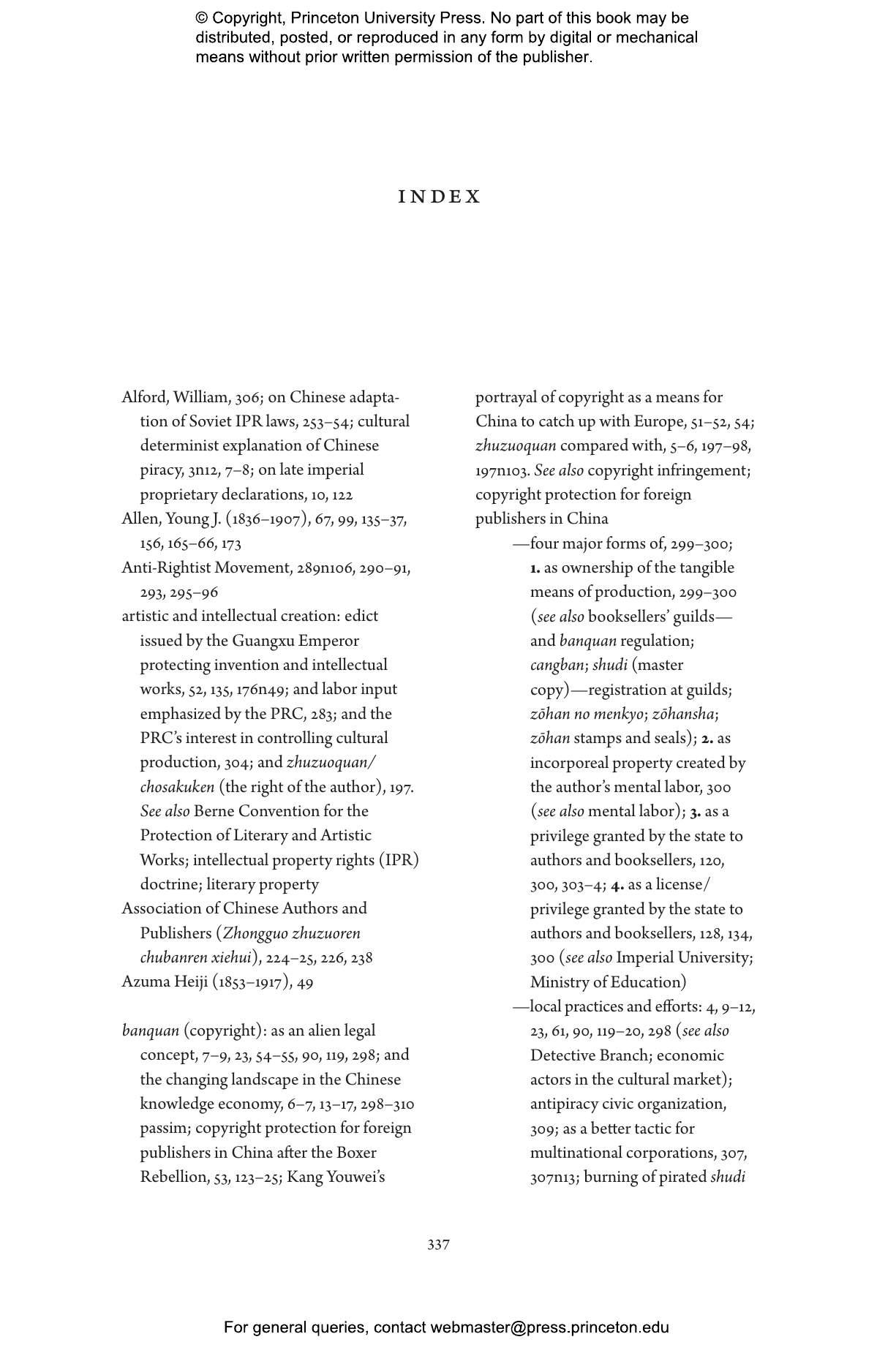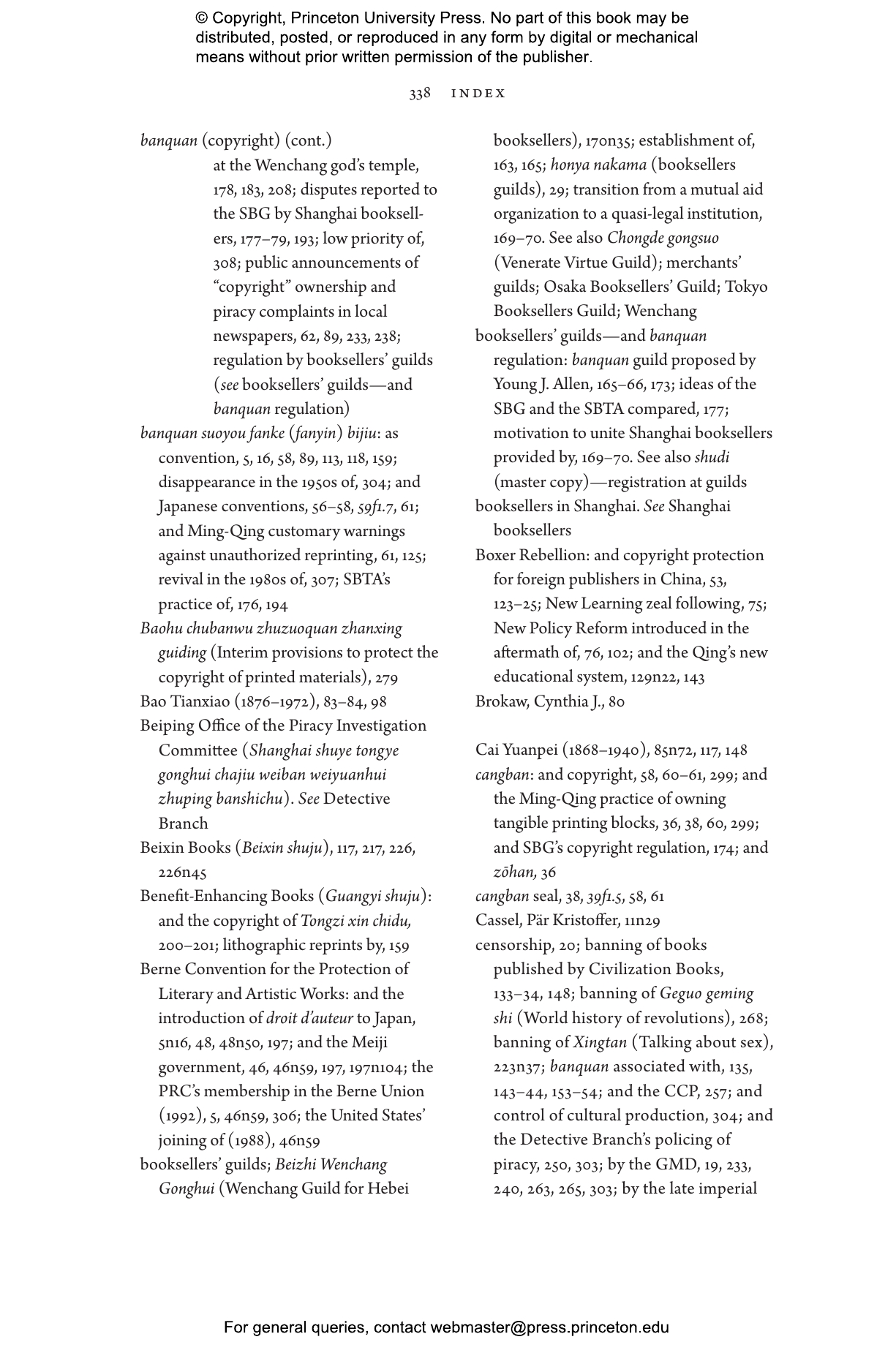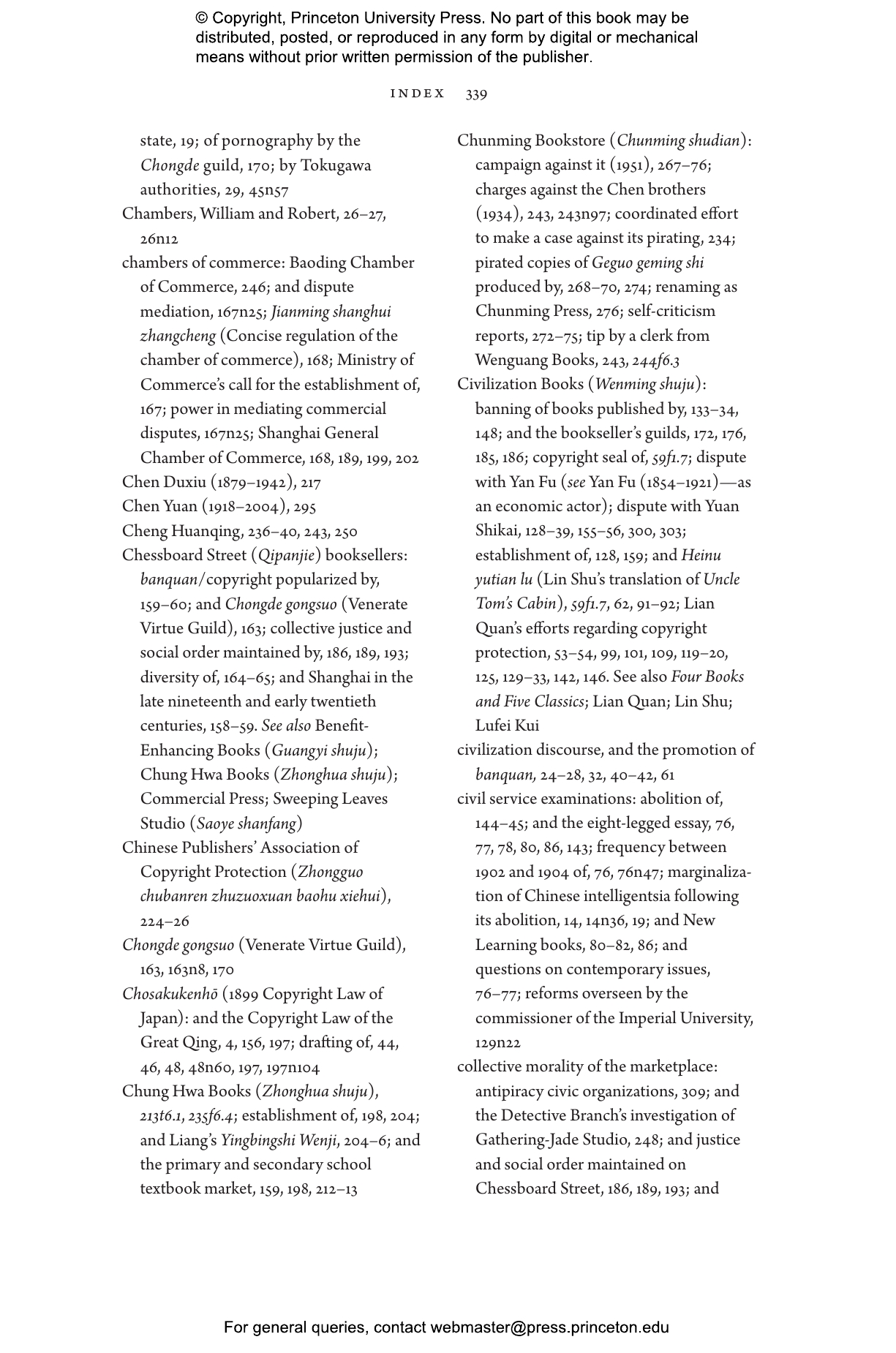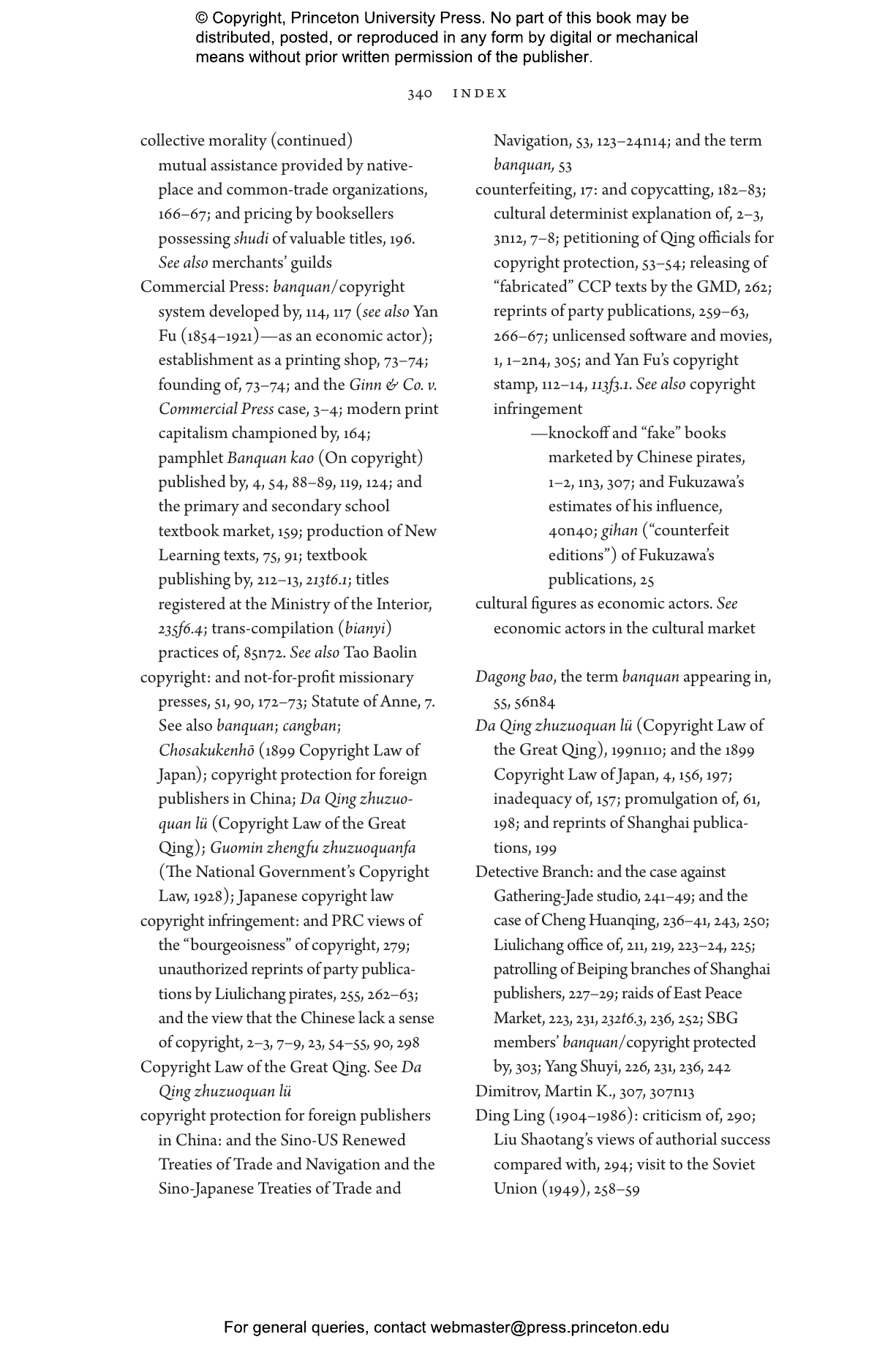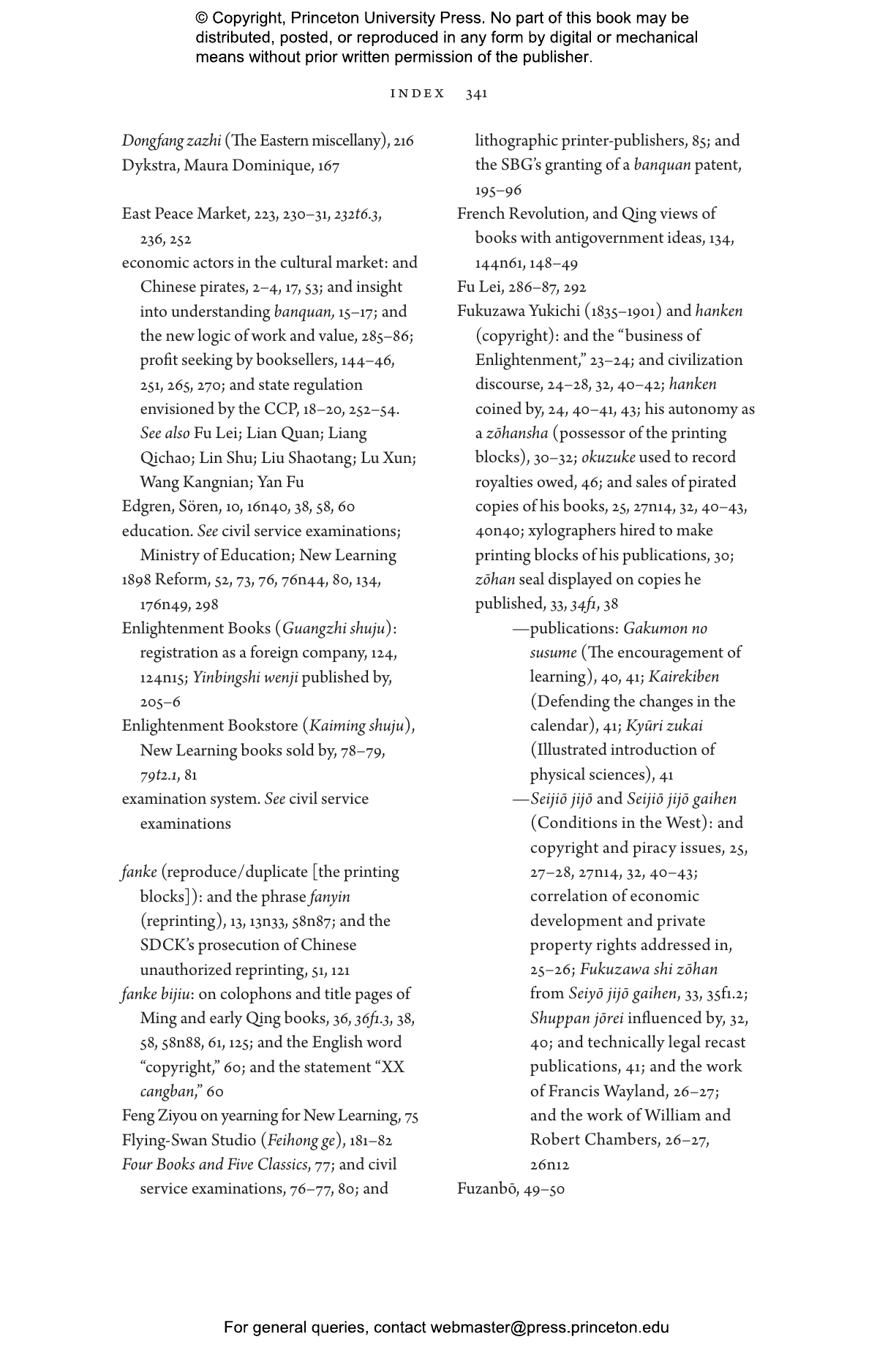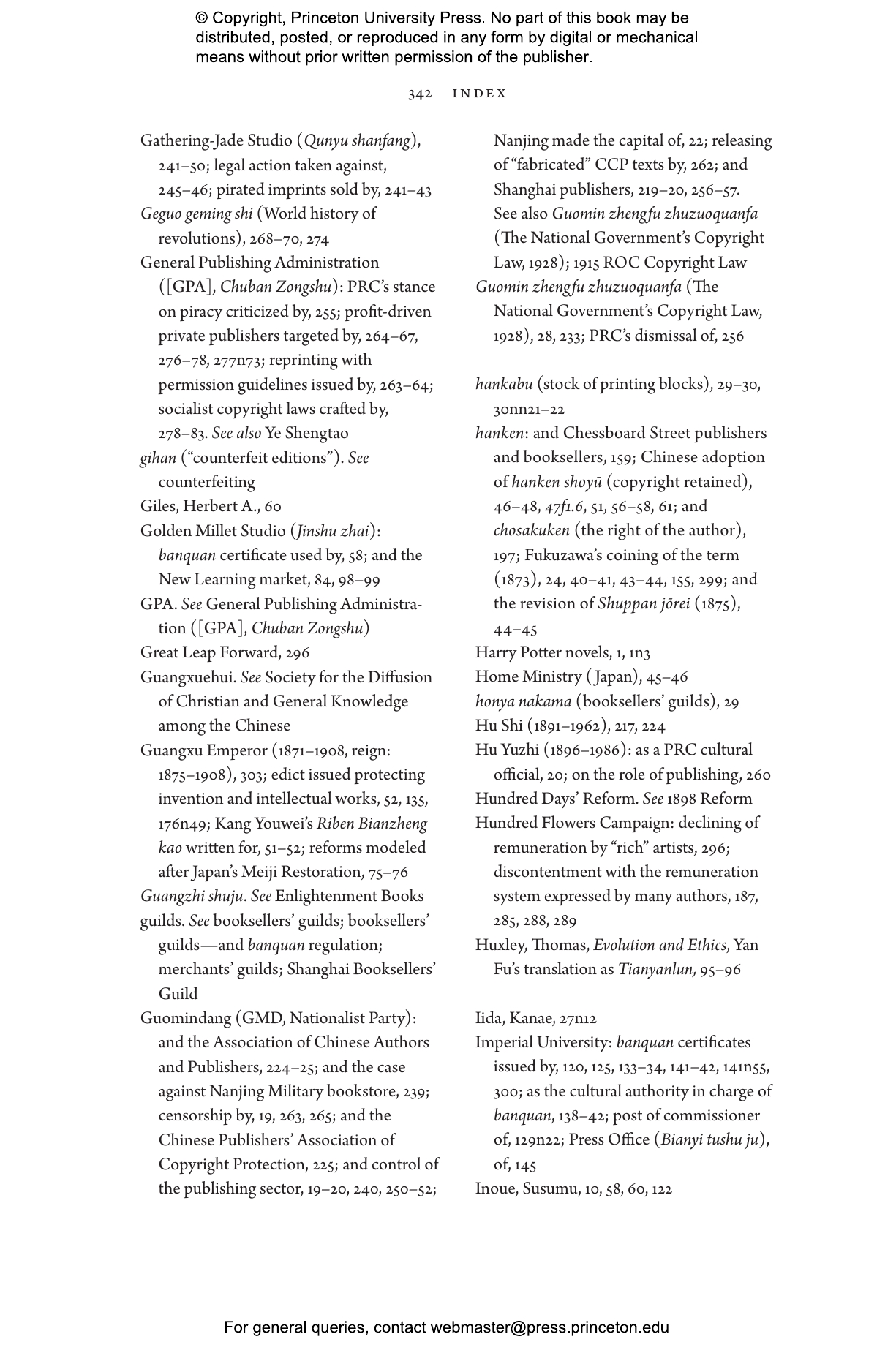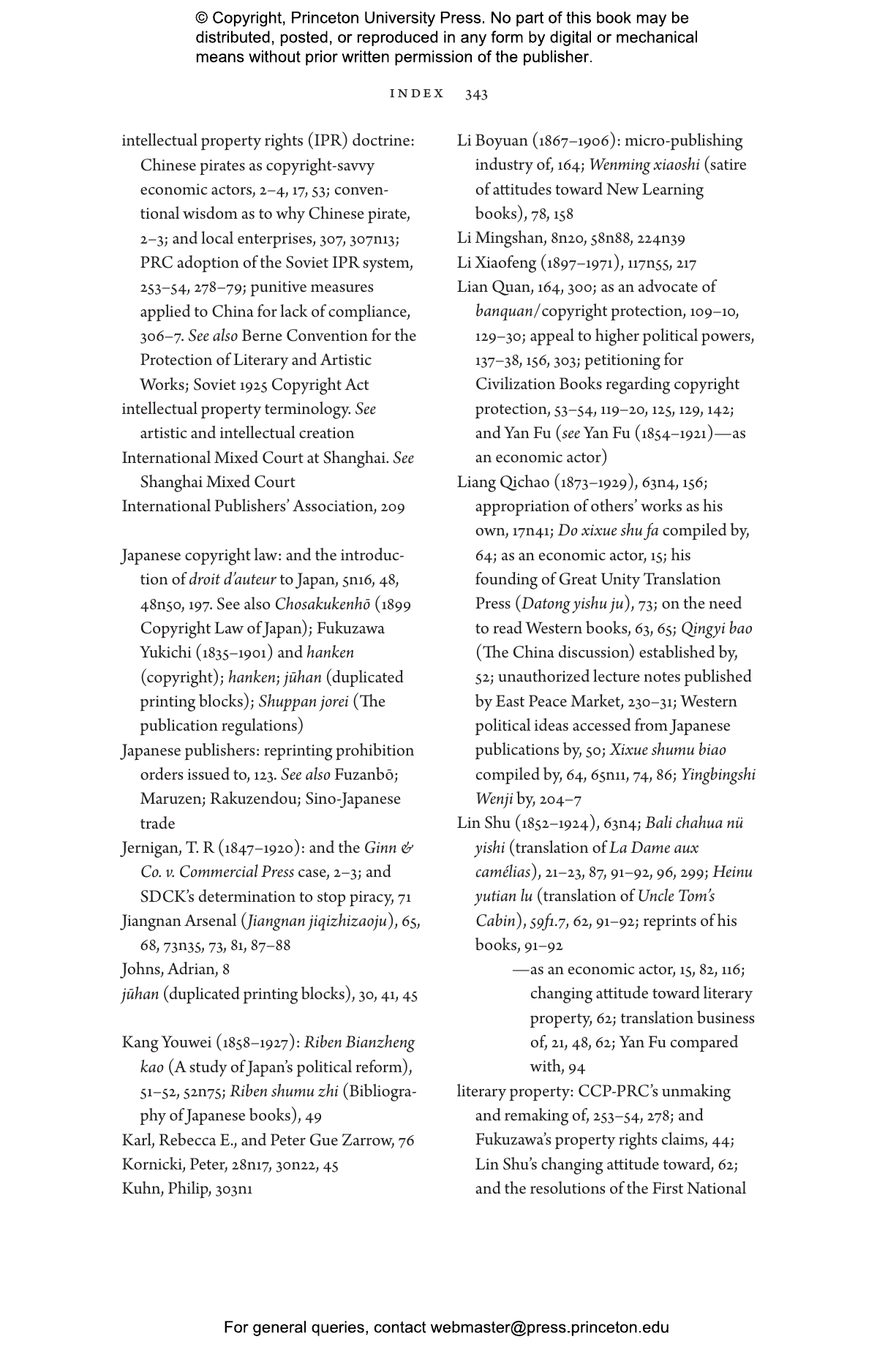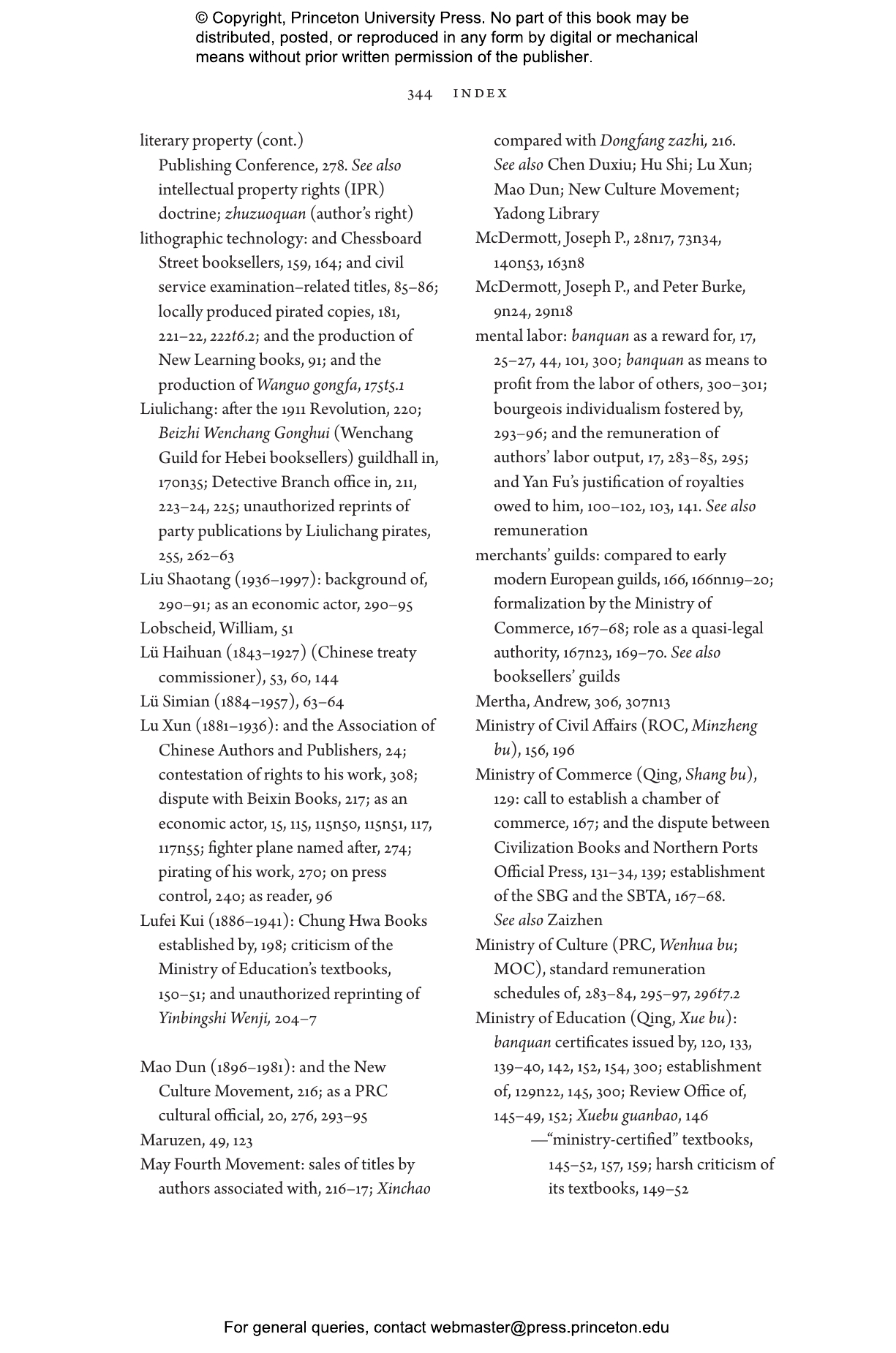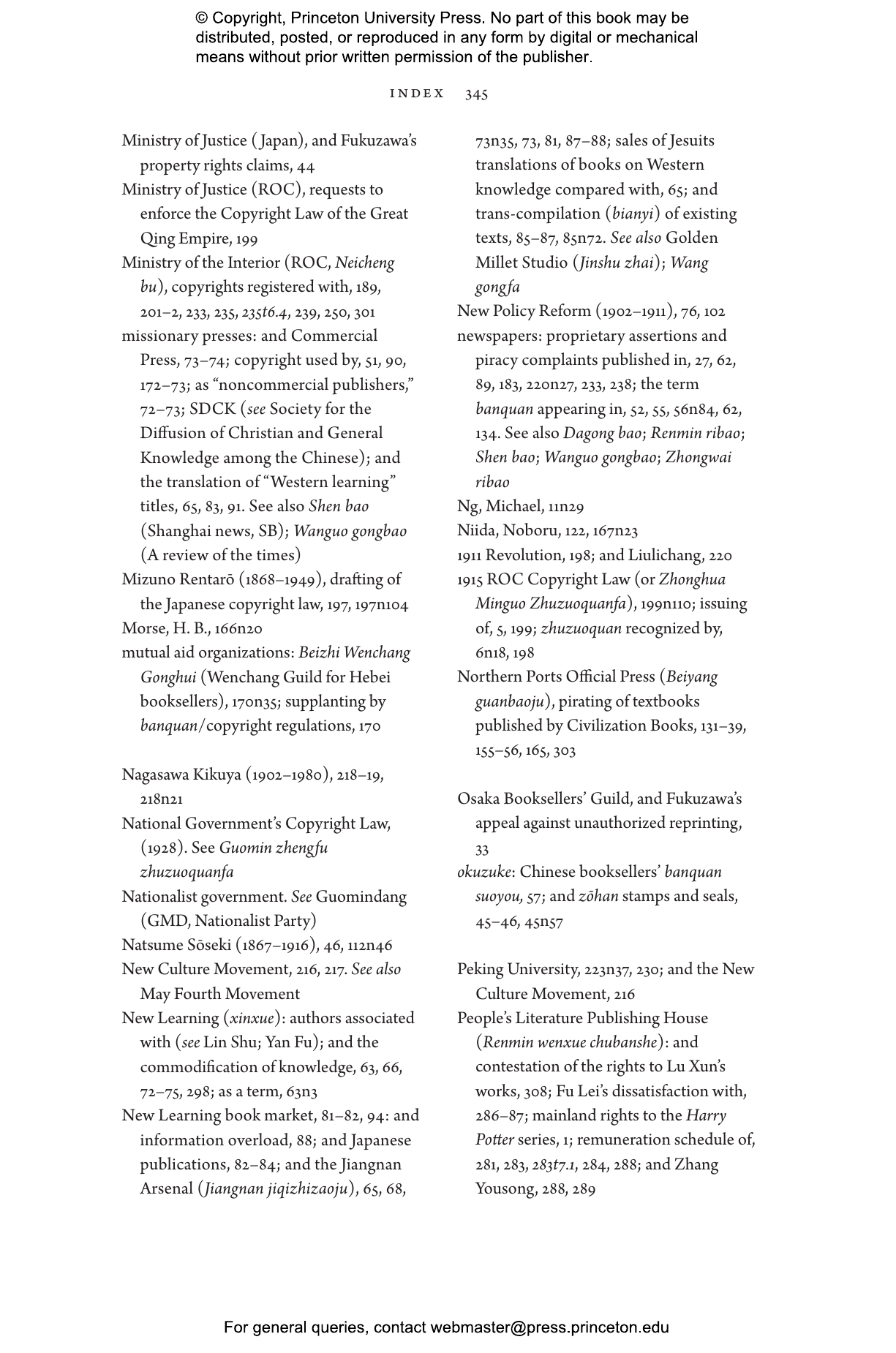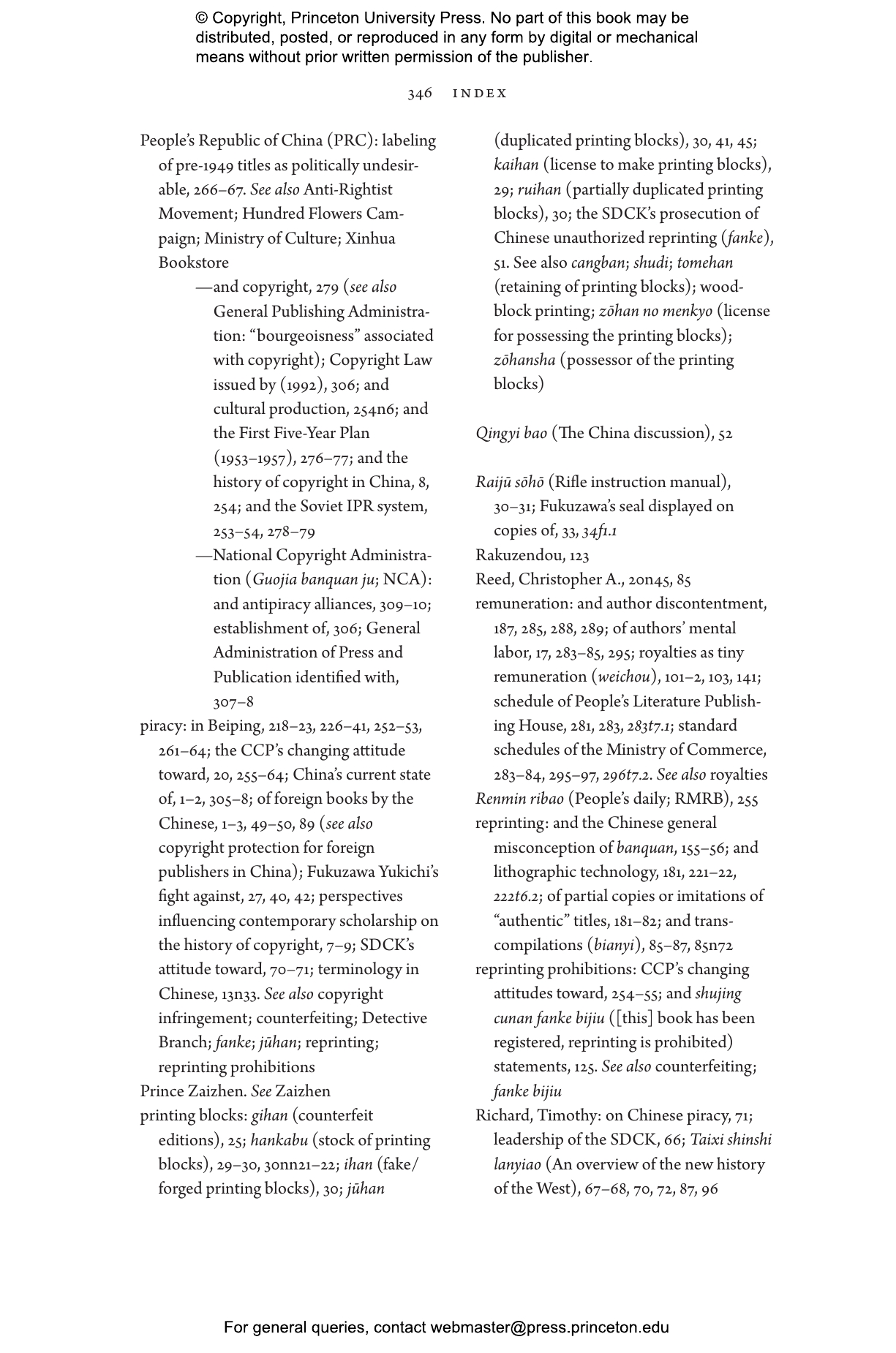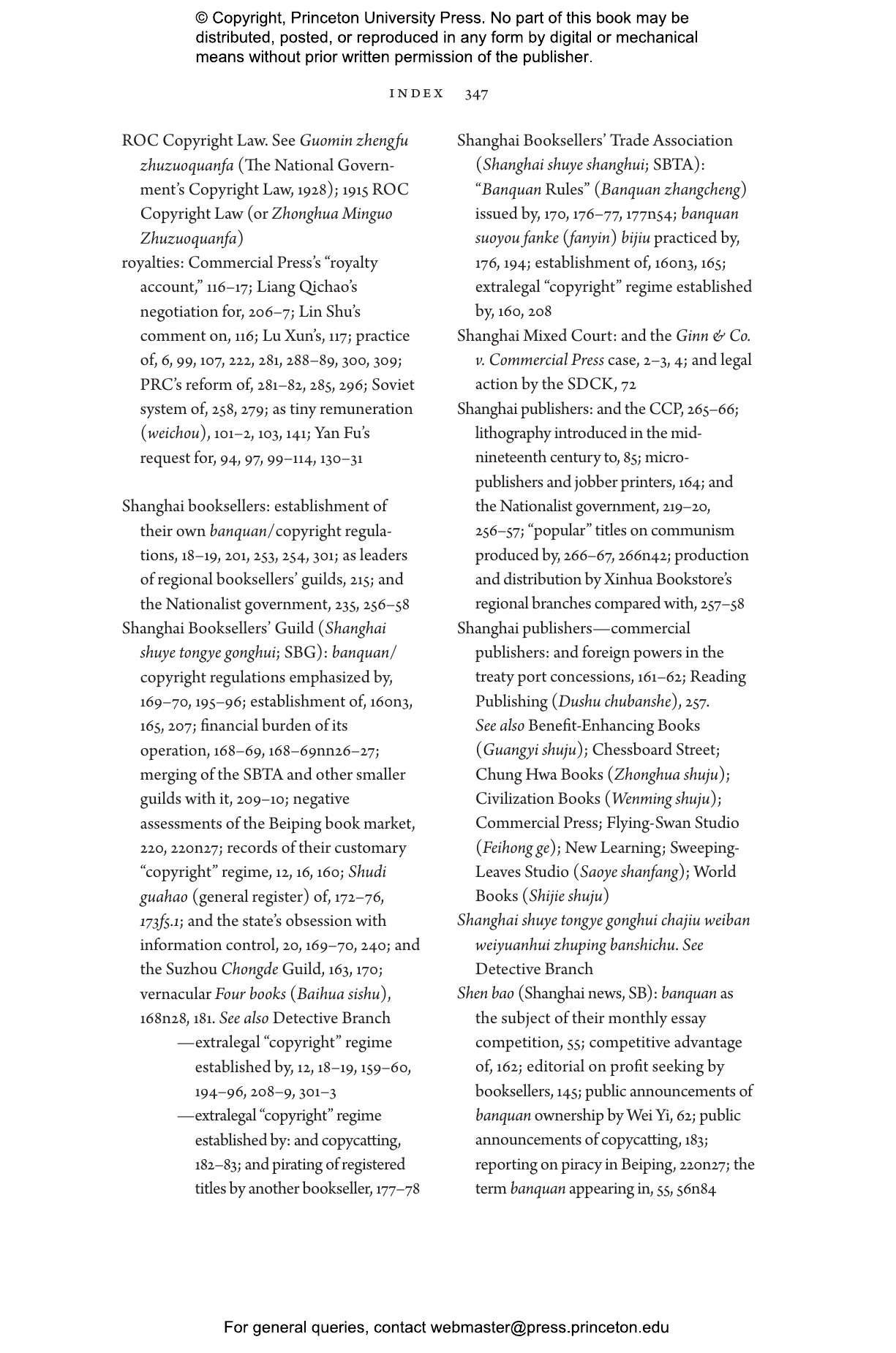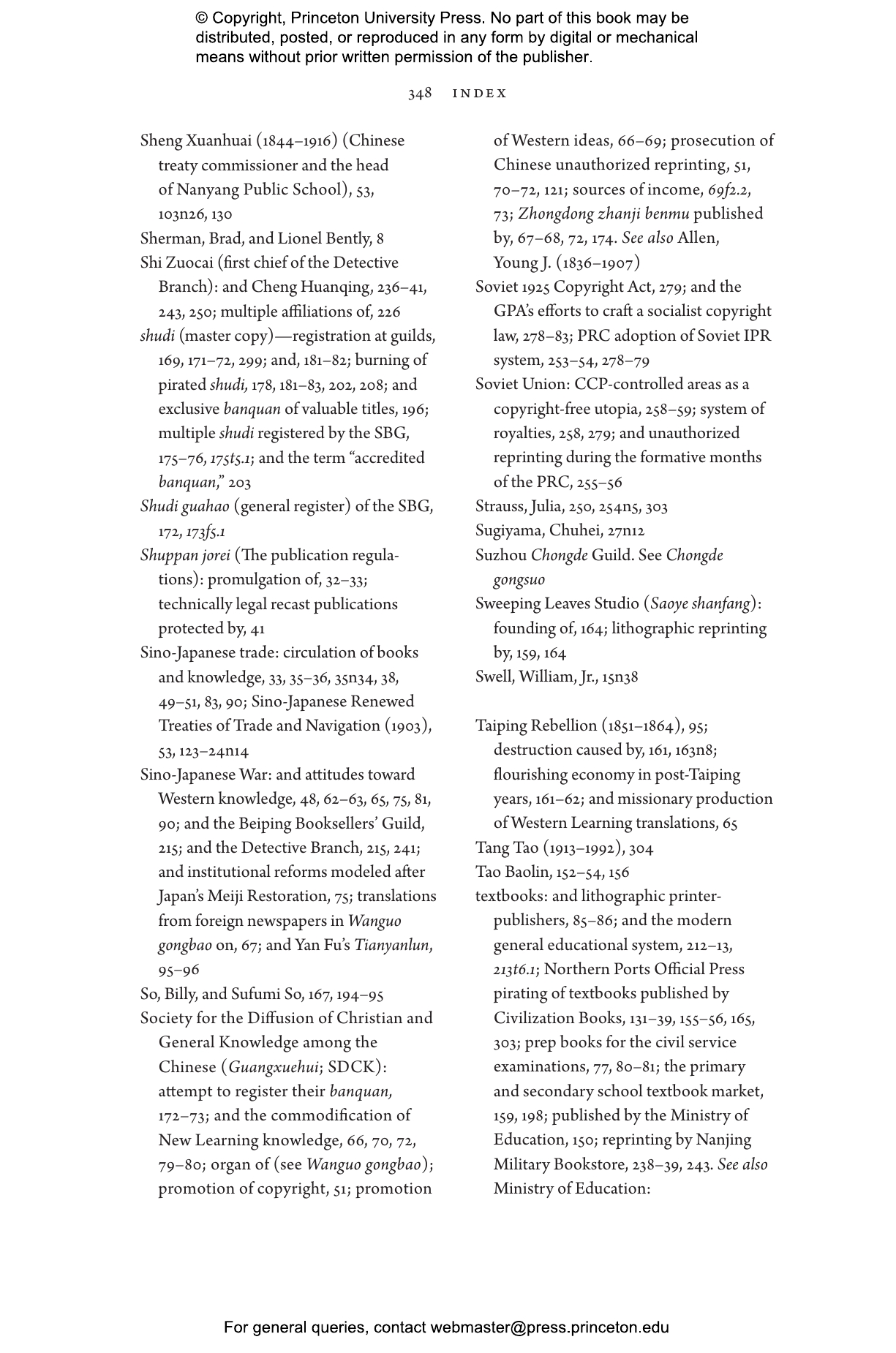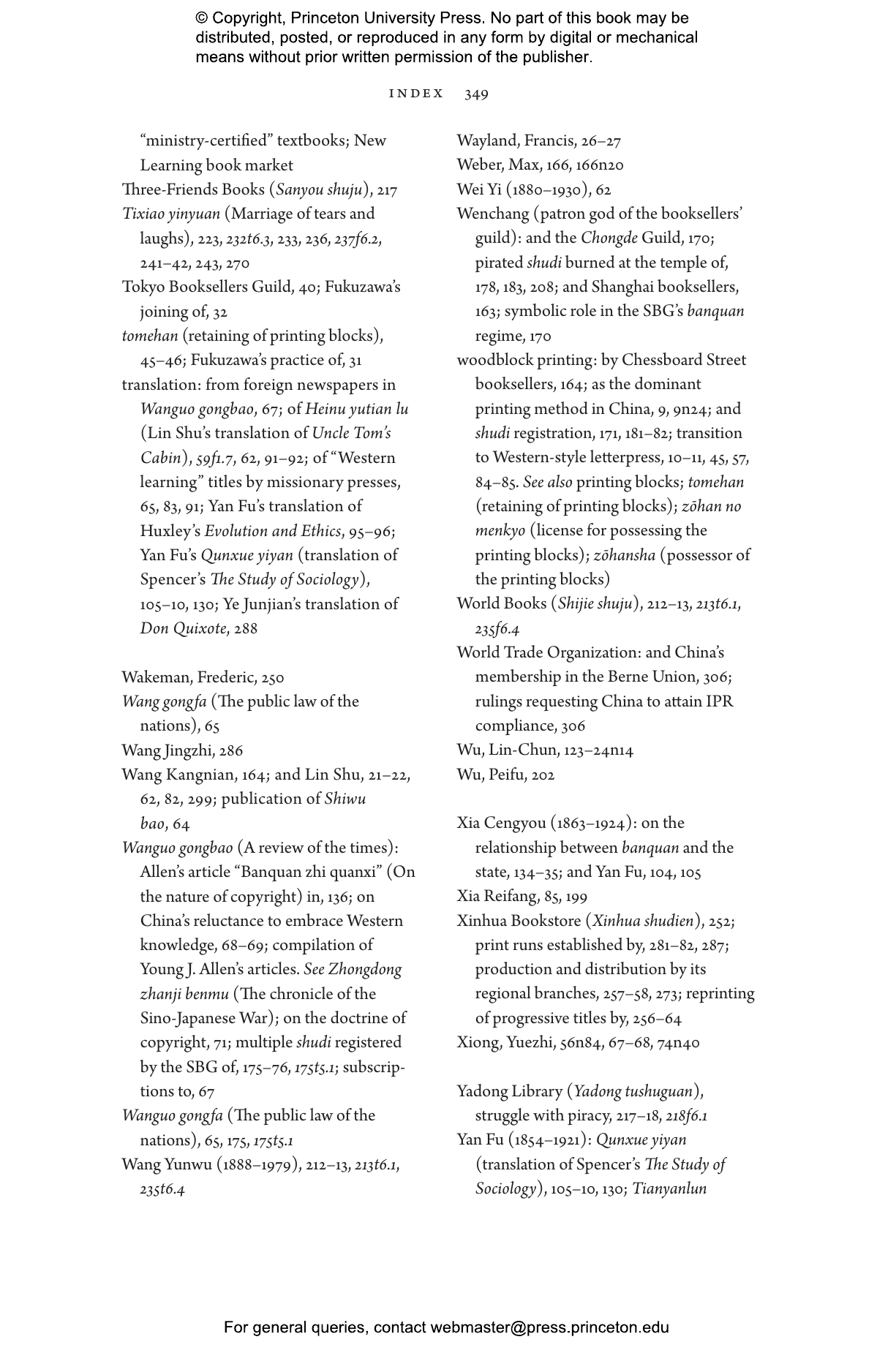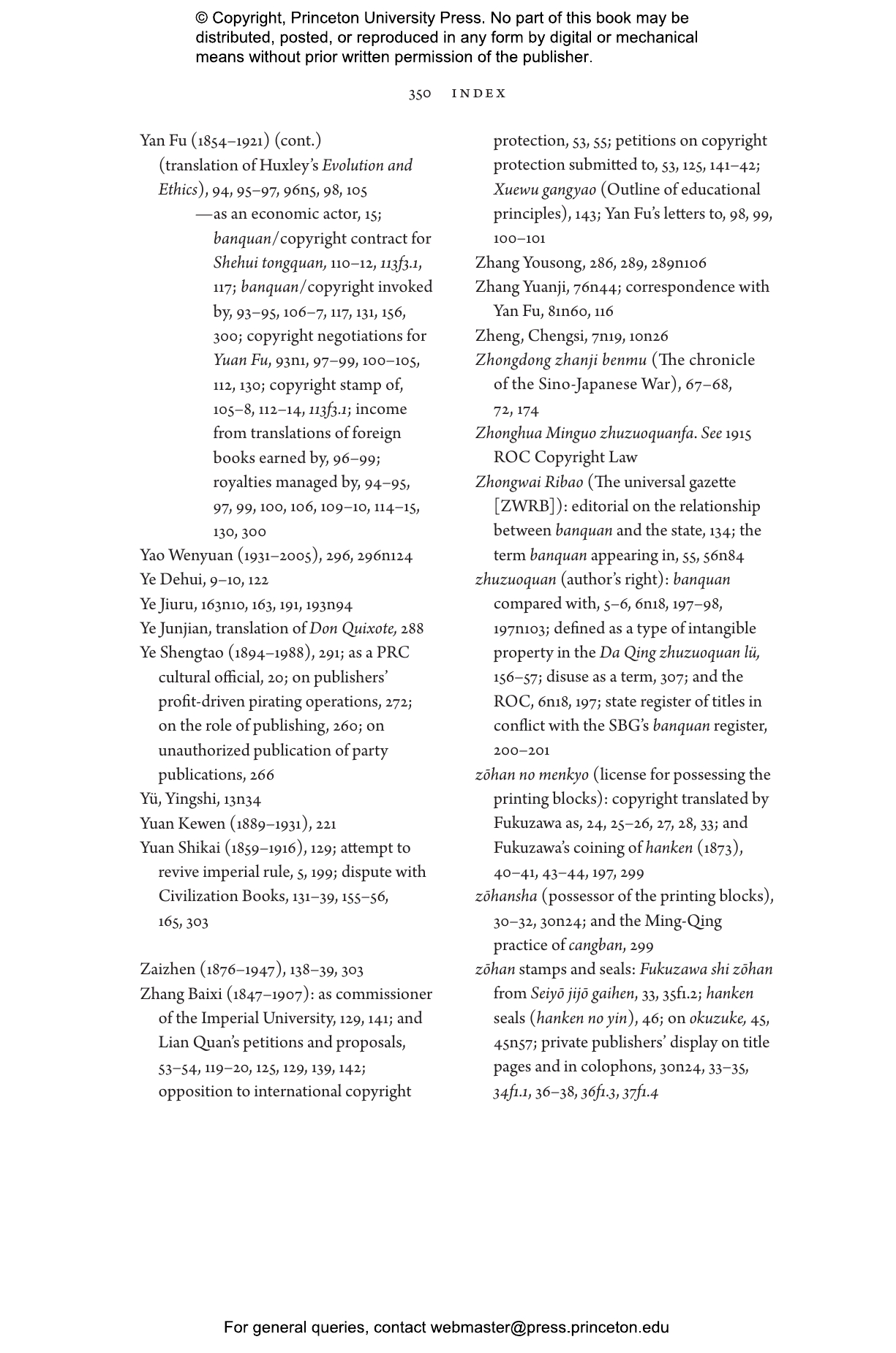In Pirates and Publishers, Fei-Hsien Wang reveals the unknown social and cultural history of copyright in China from the 1890s through the 1950s, a time of profound sociopolitical changes. Wang draws on a vast range of previously underutilized archival sources to show how copyright was received, appropriated, and practiced in China, within and beyond the legal institutions of the state. Contrary to common belief, copyright was not a problematic doctrine simply imposed on China by foreign powers with little regard for Chinese cultural and social traditions. Shifting the focus from the state legislation of copyright to the daily, on-the-ground negotiations among Chinese authors, publishers, and state agents, Wang presents a more dynamic, nuanced picture of the encounter between Chinese and foreign ideas and customs.
Developing multiple ways for articulating their understanding of copyright, Chinese authors, booksellers, and publishers played a crucial role in its growth and eventual institutionalization in China. These individuals enforced what they viewed as copyright to justify their profit, protect their books, and crack down on piracy in a changing knowledge economy. As China transitioned from a late imperial system to a modern state, booksellers and publishers created and maintained their own economic rules and regulations when faced with the absence of an effective legal framework.
Exploring how copyright was transplanted, adopted, and practiced, Pirates and Publishers demonstrates the pivotal roles of those who produce and circulate knowledge.
Awards and Recognition
- Winner of the Peter Gonville Stein Book Award, American Society for Legal History
- Runner-Up Commendation for the DeLong Book History Book Prize, Society for the History of Authorship, Reading, and Publishing
"Wang’s book . . . is [an] equally fundamental (soon to be called seminal, I believe) piece of literature as Alford’s title. Wang’s monograph dug into extreme depth."—Péter Mezei, Journal of Intellectual Property Law & Practice
"Wang’s book adds substantially both to long-standing and more recent general historical scholarship on modern China. . . . Wang uses her archival and published sources to make original, insightful, even brilliant arguments that, while clearly located within recognizable lineages of empirical social, cultural, and legal historiography, also extend that historiography in innovative and important ways. Wang writes vigorous yet nuanced jargon-free narrative and analytical prose. She knows how to tell a story. Her writing in this book will undoubtedly appeal to both scholars and laymen."—Christopher A. Reed, Journal of Chinese History
"[A] meticulously researched and highly readable new book. . . . There is a widespread general perception, even among specialists, that copyright and related intellectual property rights have always been an awkward alien import in China and enjoy no genuine social recognition or support. Pirates and Publishers makes a strong and convincing case for revising the latter notion."—Michel Hockx, Journal of Asian Studies
"What Wang does offer, through both standard resources and a unique cross-referencing of Booksellers Guild records with the Shanghai Municipal Archives, is forgotten slice of China’s economic and cultural history, largely presented here—at least by the standards of copyright law—as a rollicking read."—Ken Smith, Asian Review of Books
"Ambitious and insightful."—Nicolai Volland, East Asian Publishing and Society
"Ultimately, Wang’s book is a fine work of scholarship that persuasively demonstrates that, beyond the narrow confines of the formal law, there was a vast and socioeconomically significant dimension of institutional agency in early twentieth-century Chinese copyright practices. The book introduces much social complexity and nuance to a topic that has all too often lacked both."—Shyamkrishna Balganesh & Taisu Zhang, Harvard Law Review
"Richly detailed, this social history reconstructs the meanings of copyright in modern China as they were understood by authors, publishers, and the state, and the strategies developed by these players to protect it. Intellectual property and copyright are hot topics, and this masterfully organized book provides insights into issues still very much in contest."—Cynthia Brokaw, Brown University
"This well-researched social and cultural history looks at the emerging modern Chinese system of copyright law and practice from the late nineteenth through the mid-twentieth centuries. Shedding fresh light on an important and underexamined topic, this outstanding work makes a valuable contribution to the history of modern China, comparative study of law and copyright, and the history of the book and print culture."—Li Chen, University of Toronto
"Pirates and Publishers may well be the most important book on intellectual property in China ever to be published in English. With deep research and sharp analysis, Wang overturns conventional wisdom about the incompatibility of copyright with Chinese culture, and shows instead how authors and publishers fought hard to protect their livelihoods. Anyone interested in the information economy in China will find this book revelatory and indispensable."—Adrian Johns, University of Chicago
"Offering an inspired look through the archives and back rooms of the publishing worlds of Shanghai and Beijing, Pirates and Publishers is a wonderfully wise introduction to the complexities of China’s adoption of copyright. Wang not only lucidly unravels the twists and turns of this idea's fate in a country afflicted with chronic disorder, but also uses her findings to retell with considerable wit and flair much of modern China's intellectual and cultural history. A tour de force and a pleasure to read."—Joseph McDermott, University of Cambridge
